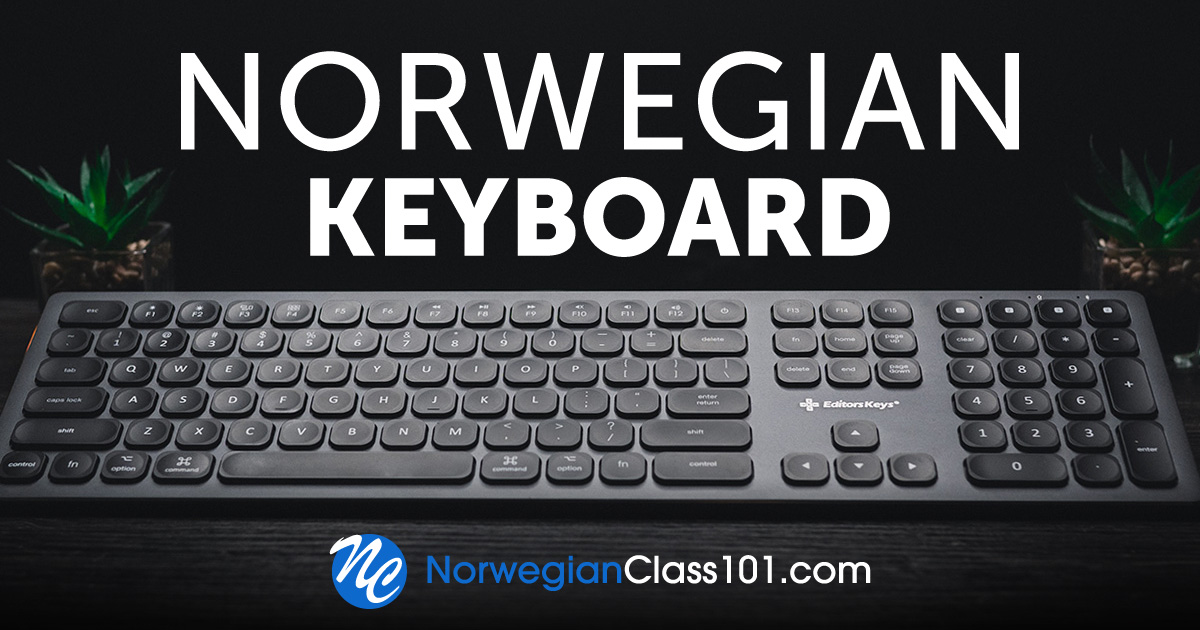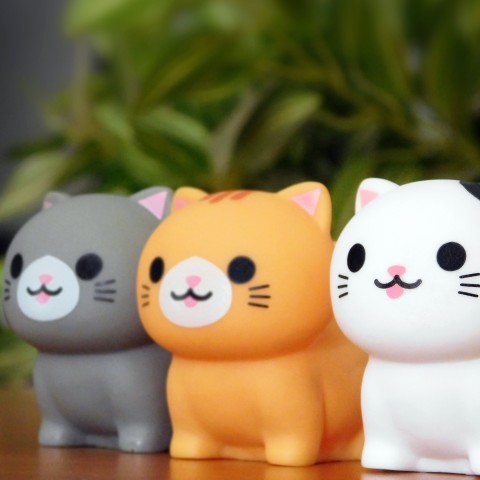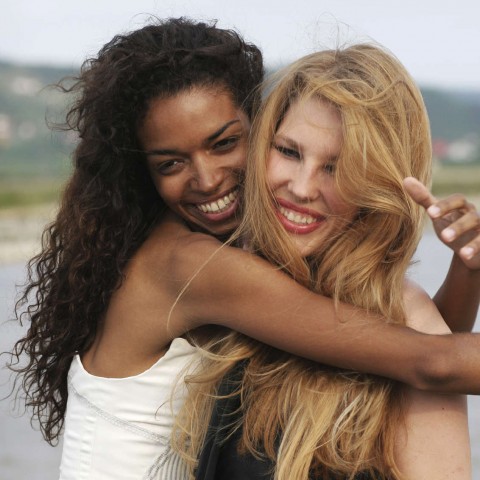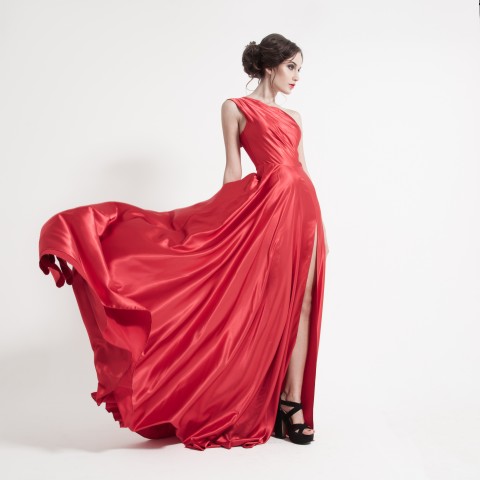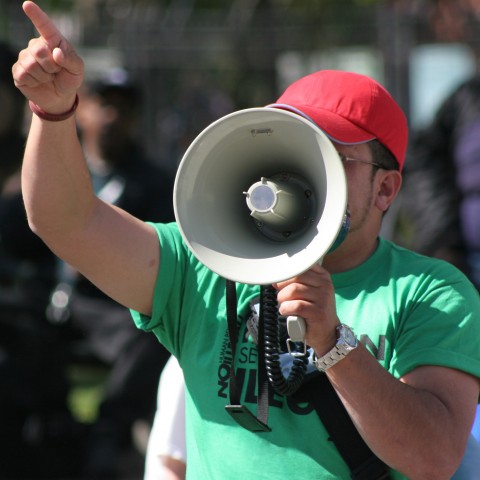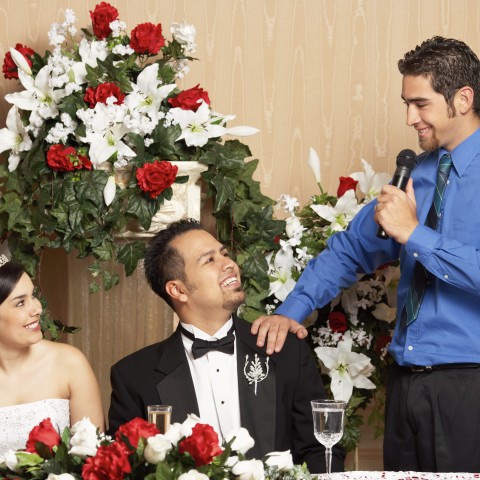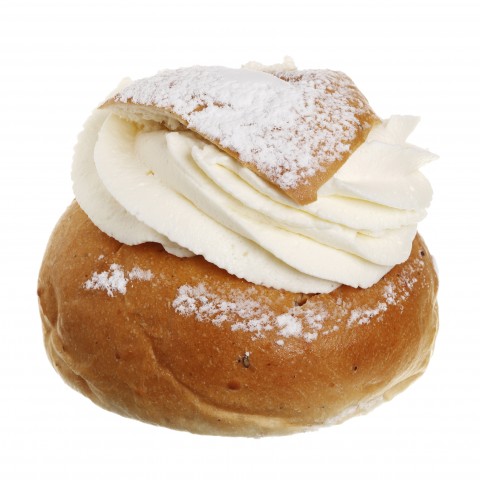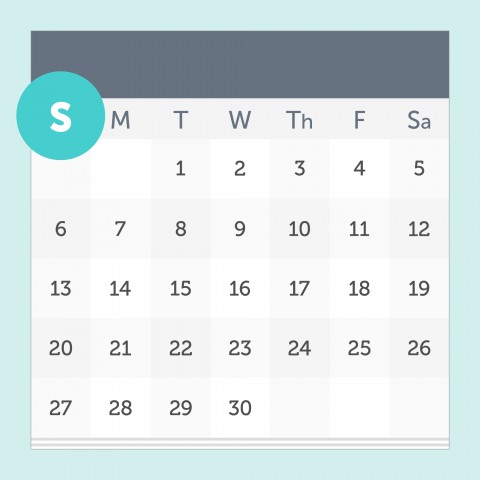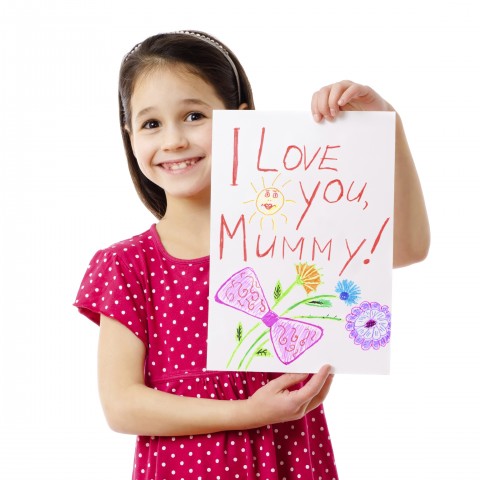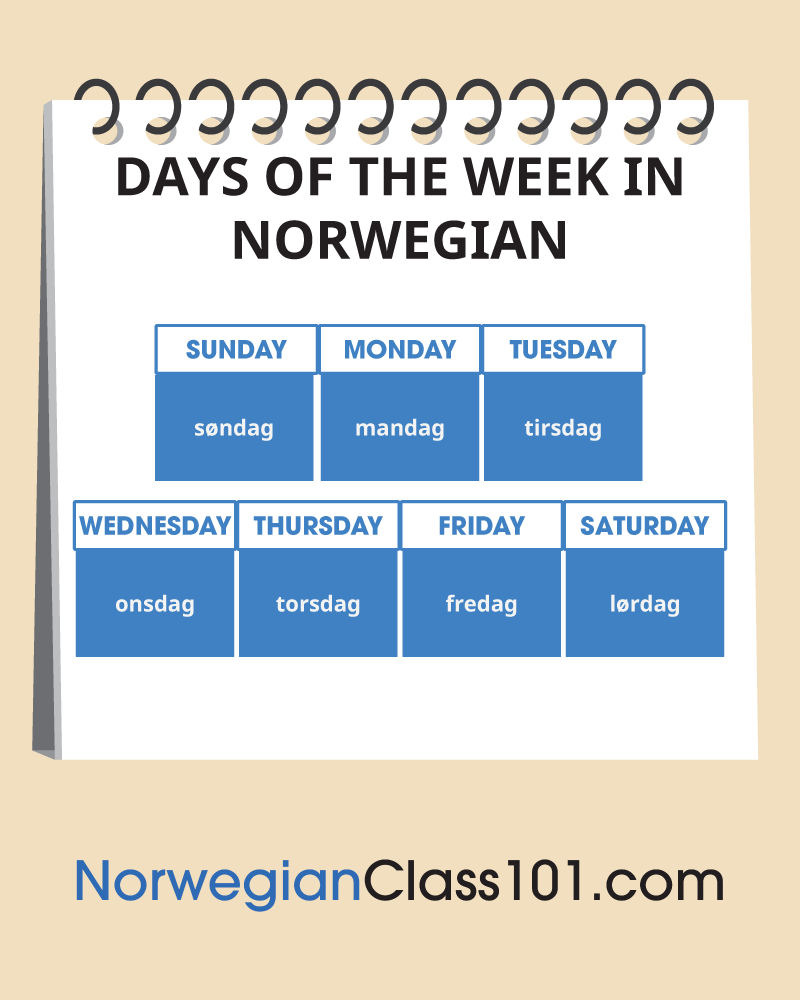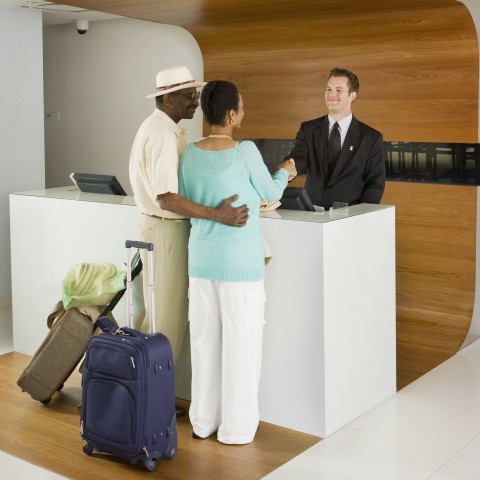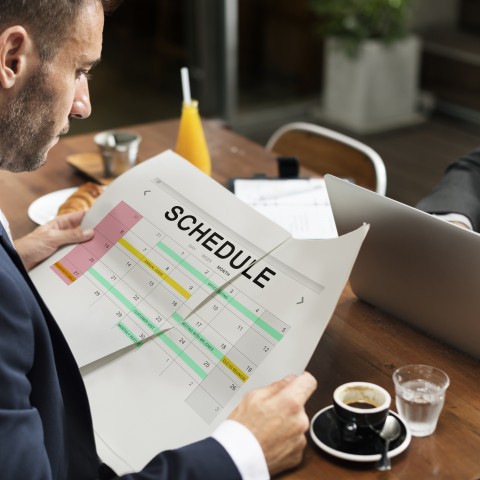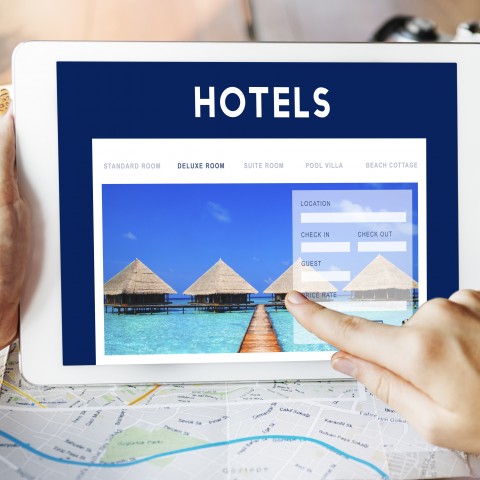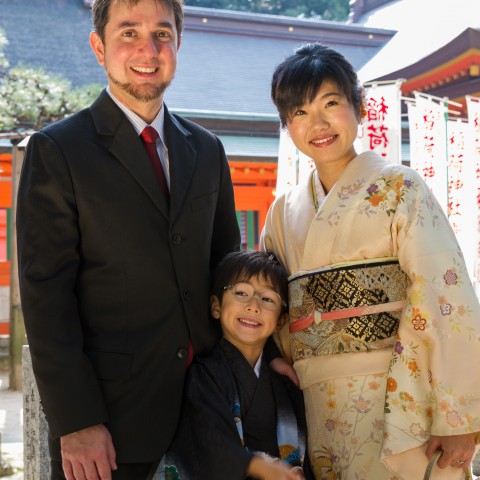
Pronouns play a large part in every language, and Norwegian is no exception. Learning the Norwegian pronouns can seem like a daunting task, especially as a beginner. But don’t worry! Pronouns in Norwegian are similar to those in English, and with some practice, you’ll quickly recognize them.
To be understood properly in Norwegian, it’s important to use the right pronouns. Keep in mind that Norwegian has three grammatical genders: male, female, and neutral. Sometimes certain pronouns will change depending on the gender of the object. How they change also depends on where in Norway you are.
If you’ve read our article on telling time in Norwegian, you already know, for example, that klokke/klokka, meaning “clock,” can be both feminine and masculine in gender. The one you use depends on where you are and who you’re speaking with. This isn’t something you have to worry too much about, especially as a beginner. You’ll learn to recognize the gender of a word with experience!
Further, Norwegian pronouns will also change according to the dialect that is spoken where you are. As you might already know, Norwegian has many dialects. Don’t worry though. It’s only the pronoun that changes, not the grammar. The pronoun “I” is the easiest to notice. Just take a look at how many ways you can say “I”: jeg, eg, æ, e, ej, je, jæ!
We’ll only cover the Norwegian Bokmål version here: jeg. But it’s still good to have some knowledge of all the different ones. Before we begin, also keep in mind that while using the correct pronouns is important, people can still understand you if you accidentally use the wrong one. It can be hard to memorize all of them, but as long as you practice, you’ll soon know them well.
In this article, you’ll learn how to use the correct Norwegian pronouns in sentences, and when talking.
Are you ready? 🙂
 Table of Contents
Table of Contents
- Norwegian Personal Pronouns
- Norwegian Demonstrative Pronouns
- Norwegian Interrogative Pronouns
- Norwegian Indefinite Pronouns
- How NorwegianClass101 Can Help You Learn Even More Norwegian!
1. Norwegian Personal Pronouns

If you’re just starting out, the personal pronouns are the easiest and most important to learn. They’re not that different from the English ones, which is a huge plus! You’ll use these the most, and if you refer to this article, you’ll sound like a native Norwegian in no time!
1- 1st-, 2nd-, and 3rd-Person Singular
Let’s start with the easiest one, which is jeg, meaning “I.” This is one of the most-used pronouns, and you’ll hear and see it often. It’s simple to say, and you can start so many sentences with it. Jeg is very often followed by a verb, as seen in the examples below.
Jeg “I”
Jeg går til butikken. “I’m walking to the shop.”
Jeg spiser mat. “I’m eating food.”
Du, or “you” in English, is another very short and simple pronoun. You’ll find that this goes for most of the pronouns, making them easy to memorize and learn. Like the pronoun jeg, du is often followed by a verb.
Du “You”
Hva spiser du? “What are you eating?”
Du går til butikken. “You’re going to the shop.”
Han, meaning “he” is used the same way as in English.
Han “He”
Han er hyggelig. “He is nice.”
Hva sier han? “What is he saying?”
The same goes for hun, meaning “she.”
Hun “She”
Hun liker mat. “She likes food.”
Hva sa hun? “What did she say?”
Now, the last third-person singular pronoun in Norwegian is den/det, meaning “it” in English. If a noun is masculine or feminine, den is used. If a noun is neutral, det will be used instead.
Den/Det “It”
Liker du den? (f/m) “Do you like it?”
Det er greit. (n) “It’s okay.”
2- 1st-, 2nd-, and 3rd-Person Plural
Good news! The plural personal pronouns are very similar to the English ones! Vi even sounds almost the same. Let’s take a look.
Vi “We”
Vi drar. “We are going.”
Vi skal spise. “We’re going to eat.”
De, meaning “they,” also sounds similar to its English counterpart, making it easy to learn.
De “They”
De vil ikke spise. “They don’t want to eat.”
De vil dra. “They want to go.”
The last one is dere, the equivalent of “you” (plural) in English.
Dere “You”
Dere sovnet tidlig i går. “You fell asleep early yesterday.”
Når dro dere? “When did you go?”
3- Object Form
Norwegian object pronouns, also called the object form, are used the same way as those in English. Easy, right?
Meg is the object form of “I.”
Meg “Me”
Han snakket til meg. “He talked to me.”
Hun elsker meg. “She loves me.”

Dem is the object form of “them.”
Dem “Them”
Han snakker med dem. “He is talking to them.”
Hun elsket dem. “She loved them.”
Last, we have the object form of “you.”
Deg “You”
Jeg elsker deg. “I love you.”
Han elsker deg. “He loves you.”
4- Possessive Forms
Now we’re entering into more advanced territory. Norwegian possessive pronouns can be tricky. In Norwegian, which possessive form you’re using depends on the gender of the object you’re talking about. If you remember what we wrote about Norwegian having three genders—male, female, and neutral—this makes sense. However, as we said, this takes practice and time, so don’t worry if you make a few mistakes along the way.
Let’s have a look at the possessive forms “my” and “mine.”
Min / Mi/ Mitt / Mine “My” / “Mine”
Here, the word bok, meaning “book,” is used in the example. Bok can be both a male and female object. The one you use depends on which one you prefer. Here you’ll see both, and their corresponding possessive forms.
Male
Min “My”
Gi meg boken min. “Give me my book.”
Female
Mi “My”
Gi meg boka mi. “Give me my book.”
Speil, meaning “mirror,” is a neutral word in Norwegian. If you look closely at the sentence below, you’ll notice that the word speil has an -et ending, meaning it’s neutral.
Neutral
Mitt “My”
Gi meg speilet mitt. “Give me my mirror.”
The Norwegian possessive form in the plural form is the same, no matter what gender the word is. It also has the same spelling as in English, although it’s pronounced differently.
Plural
Mine “My” / “Mine”
Gi meg bøkene mine. “Give me my books.”
Bøkene er mine. “The books are mine.”
The possessive forms of “your” and “yours” follow the same rules as those above.
Din /Di /Ditt / Dine “Your” / “Yours”
Male
Din “Your”
Gi meg boken din. “Give me your book.”
Female
Di “Your”
Gi meg boka di. “Give me your book.”
Neutral
Ditt “Your”
Gi meg speilet ditt. “Give me your mirror.”
Plural
Dine “Your” / “Yours”
Gi meg bøkene dine. “Give me your books.”
Dette er dine. “These are yours.”
Then there’s the possessive form of “their.” This possessive form doesn’t change based on gender, so it stays the same.
Deres “Their”
Kan du gi meg nummeret deres? “Can you give me their number?”
Dette er deres mat. “This is their food.”

The possessive form of “its,” “his,” and “hers” will change depending on the gender. First let’s take a look at “its,” which has two different possessive forms.
Dets / Dens “Its”
Dets is used when the noun is neutral. Dens is used when the noun is masculine or feminine.
MASCULINE / FEMININE
Dens arkitektur er vakker. “Its architecture is beautiful.”
NEUTRAL
Legg merke til universet og dets vakre farger. “Notice the universe and its beautiful colors.”
The possessive form “his” in Norwegian is simply the pronoun han, with an added s: hans.
Hans “His”
Øynene hans er grønne. “His eyes are green.”
The possessive form “her(s)” is a little different. Here we use the word hennes.
Hennes “Her(s)”
Øynene hennes er blå. “Her eyes are blue.”
5- Reflexive Forms
Now, let’s move onto Norwegian reflexive pronouns.
The reflexive form of “myself” is almost the same as the pronoun “me” in Norwegian. The only difference is that the word selv is added after, meaning “self.”
Meg selv “Myself”
Jeg har ansvar for meg selv. “I have a responsibility to myself.”
The reflexive form of “yourself” and “yourselves” follows the same structure. You simply use the word deg, which is the object form of “you,” and add selv after it. When it comes to “yourselves,” dere is used instead of deg.
Deg selv “Yourself”
Du må hjelpe deg selv. “You must help yourself.”
Dere selv “Yourselves”
Dere må hjelpe dere selv. “You must help yourselves.”
For the pronouns “himself,” “herself,” and “themselves,” only the word selv is used. This makes it very easy to learn!
Selv “Himself” / “Herself” / “Themselves”
Han/Hun/De må gjør det selv. “He/She/Them have to do it himself/herself/themselves.”
6- Vocabulary
Let’s look at all the pronouns together. Refer to this Norwegian pronouns table when you need some practice!
| Personal Pronouns (Singular) | |
| Jeg | “I” |
| Du | “You” |
| Han | “He” |
| Hun | “She” |
| Den/Det | “It” |
| Personal Pronouns (Plural) | |
| Vi | “We” |
| De | “They” |
| Dere | “You” |
| Object Forms | |
| Meg | “Me” |
| Dem | “Them” |
| Possessive Forms | |
| Min (Male) | “My” |
| Mi (Female) | “My” |
| Mitt (Neutral) | “My” |
| Mine (Plural) | “My” / “Mine” |
| Din (Male) | “Your” |
| Di (Female) | “Your” |
| Ditt (Neutral) | “Your” |
| Dine (Plural) | “Your” / “Yours” |
| Deres | “Their” |
| Meg selv | “Myself” |
| Selv | “Himself” / “Herself” / “Themselves” |
2. Norwegian Demonstrative Pronouns
Demonstrative pronouns are used to specify objects, as well as the distance to objects. Norwegian demonstrative pronouns work the same way as the English ones, so these are quite simple to learn!
1- This and That
In Norwegian, the word for “this” is dette / denne. You probably already know that this means we’ll change which one we use depending on the gender of the object. Dette / denne is used when an object is near.
Dette / Denne “This”
Denne (f/m) “This”
Ta denne boka/boken. “Take this book.”
Dette (neutral) “This”
Ta dette speilet. “Take this mirror.”

Dette er den jeg vil ha. (“This is the one I want.”)
“That” is very simple to learn if you know how to say “this!” The pronouns for “that” are pretty much just short versions of the above Norwegian pronouns. Den / det is used when something is further away.
Det / Den “That”
Den (f/m) “That”
Ta den boka/boken. “Take that book.”
Det (neutral) “That”
Det er et speil. “That is a mirror.”

2- These and Those
Disse, meaning “these,” is used when an object is near and in the plural form.
Disse “These”
Les disse bøkene. “Read these books.”
Can you guess what de means? De is used when an object is far away and in the plural form. You might also notice that de is the same pronoun as the personal pronoun “they.”
De “Those”
Les de bøkene. “Read those books.”
3- Here and There
“Here” and “there” are pretty self-explanatory. The Norwegian demonstrative pronouns for these are, again, very similar to the English ones.
Her “Here”
Bøkene er her. “The books are here.”
Der “There”
Bøkene er der. “The books are there.”
3. Norwegian Interrogative Pronouns
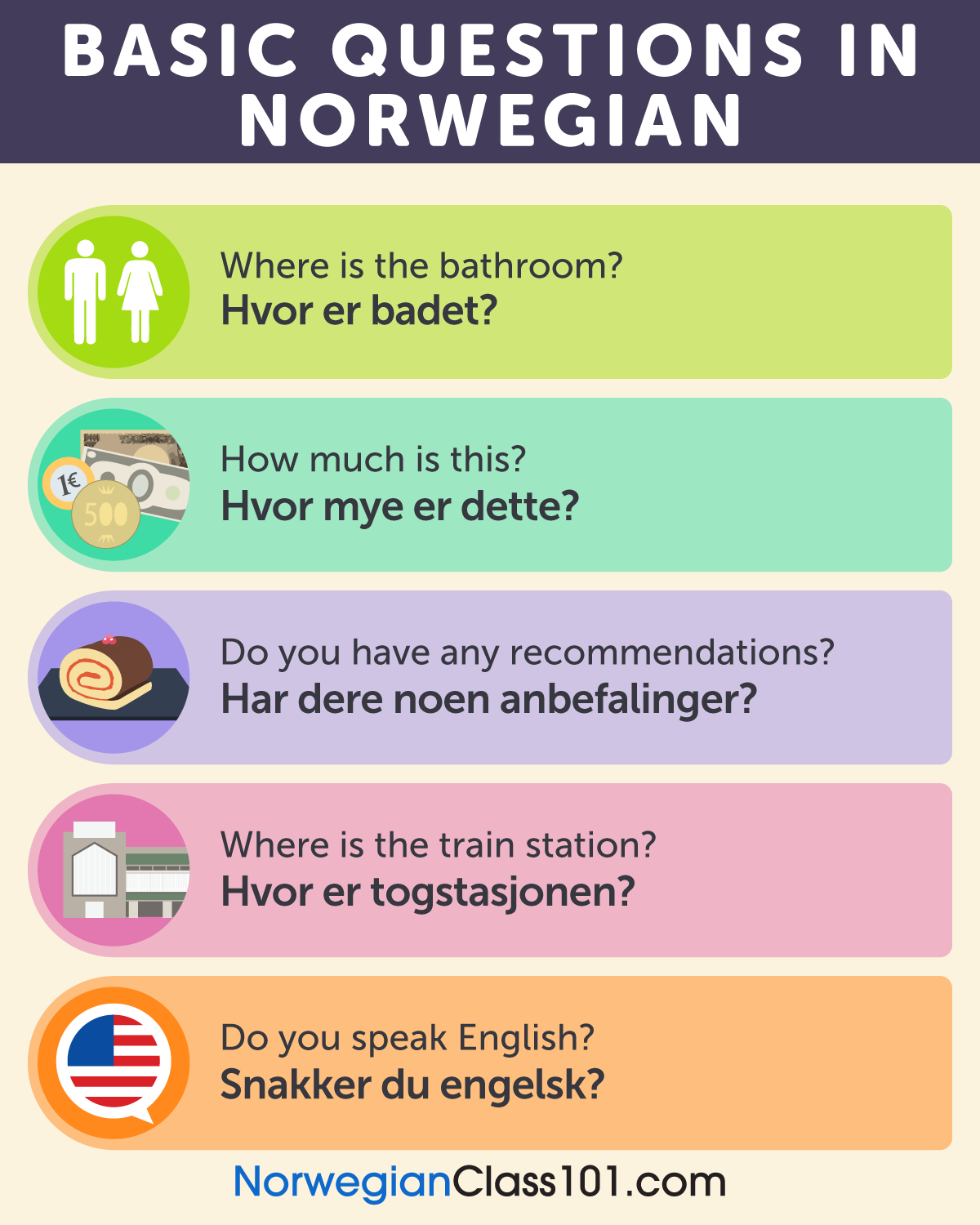
In the Norwegian language, interrogative pronouns are simply called spørreord, meaning “question words.” Again, they’re used in the same way as those in English. In most cases, the Norwegian interrogative pronouns are placed at the beginning of a sentence.
| Norwegian | English | Example | Example translation |
|---|---|---|---|
| Hva | “What” | Hva mener du? | “What do you mean?” |
| Hvorfor | “Why” | Hvorfor sa du det? | “Why did you say that?” |
| Hvilken | “Which” | Hvilken bok har du? | “Which book do you have?” |
| Hvem | “Who” / “Whom” | Hvem sa det? | “Who said that?” |
| Hvem (sine) | “Whose” | Hvem sine bøker er dette? | “Whose books are these?” |
| Hvor | “Where” | Hvor bor du? | “Where do you live?” |
| Hvordan | “How” | Hvordan gjør jeg dette? | “How do I do this?” |
| Når | “When” | Når kommer du hjem? | “When are you coming home?” |
4. Norwegian Indefinite Pronouns

When it comes to indefinite pronouns in Norwegian, it can get a little confusing. In English, most of the indefinite pronouns are just a word. Some of the Norwegian indefinite pronouns are actually phrases. We will, of course, give these some extra attention, so that you can understand what words they’re made up of!
First we have the indefinite pronouns “everyone” / “everybody.” The equivalent in Norwegian is alle sammen. But hang on, it’s not that easy.
Alle can actually mean “everyone” although the direct translation is “all.” Sammen means “together.” However, when someone is using “everyone” / “everybody,” the most common way is to say alle sammen. Alle is more often used when talking about objects, which you’ll see is also the case with the Norwegian indefinite pronoun for “everything.”
Alle sammen “Everyone” / “Everybody”
Kan alle sammen komme hit? “Can everyone/everybody come here?”
Now, let’s look at the indefinite pronoun “everywhere.” In Norwegian, this is overalt. Again, this pronoun is made up of two words. The first is over, which means “over.” The second part is alt, which means “everything.” Does it remind you of alle? That’s because it’s the same word, just conjugated.
Overalt “Everywhere”
Det er rotete overalt! “It’s messy everywhere!”
Considering what you just learned, the word for “everything” should be easy. As we said just above, “everything” in Norwegian is alt. It’s simply a direct translation from English! However, note that it’s very common to add the word sammen, meaning “together,” after it.
Alt (sammen) “Everything”
Du tok alt (sammen)! “You took everything!”
“Someone” / “Somebody” is easy to learn in Norwegian. It’s simply the pronoun noen.
Noen “Someone” / “Somebody”
Har noen en penn? “Does someone/somebody have a pen?”

The word for “somewhere” is a little more complicated again. There are two ways of saying “somewhere.” The shortest version is et sted, meaning “one place.” The longer way of saying it is et eller annet sted, meaning “some place or another.” Both are equally common to say, but et eller annet sted is often used when you really can’t find something and are frantically looking for it.
Et sted/et eller annet sted “Somewhere”
Den må være her et sted. “It has to be here somewhere.”
Den må være her et eller annet sted. “It has to be here somewhere.”
Let’s go from something complicated to something easier! “Something” is simply the word noe. As you can see, it’s very similar to the indefinite pronoun noen, meaning “someone.”
Noe “Something”
Jeg må fortelle deg noe. “I have to tell you something.”
“No one” / “Nobody” is another short and simple word in Norwegian.
Ingen “No one” / “Nobody”
Ingen ringte meg. “No one/Nobody called me.”
“Nowhere” isn’t a specific pronoun in Norwegian, but rather a sentence. Like “somewhere,” there are two ways you can say it. The most common one is Ikke noe sted, directly meaning “not a place.” A less common way is saying inget sted, meaning “no place.”
Ikke noe sted/Inget sted “Nowhere”
Jeg finner den ikke noe sted/inget sted. “It’s nowhere to be found.”
Ingenting means “nothing” in Norwegian. It means “no thing,” exactly like in English.
Ingenting “Nothing”
Vesken har ingenting innvendig. “The purse has nothing inside.”
“Anyone” / “Anybody” is noen in Norwegian. You might be a little confused since we just said noen means “someone” / “somebody.” While we agree it’s a little confusing, there’s really no explanation for this other than that it’s the same word in Norwegian! They’re even pronounced the same way. So it’s one less word you’ll have to practice! 🙂
Noen “Anyone” / “Anybody”
Kan noen fortelle meg hva som skjedde? “Can anyone/anybody tell me what happened?”
“Anywhere” is another sentence in Norwegian: hvor som helst. It doesn’t really have a direct translation to English; it simply means “anywhere.”
Hvor som helst “Anywhere”
Den kan være hvor som helst. “It can be anywhere.”
So what do you think “anything” is? Switch out the hvor with hva, and you have the answer! Hva som helst means “anything” in Norwegian. Again, it’s a sentence without any direct translation to English.
Hva som helst “Anything”
Gi meg hva som helst. “Give me anything.”
5. How NorwegianClass101 Can Help You Learn Even More Norwegian!
Learning Norwegian grammar can be hard, especially if you’re a beginner in the Norwegian language. Norwegian pronouns are easy to learn, but also complicated at times. Like most languages, there can be many rules to remember, but with time, it will get easier. Using good learning resources like NorwegianClass101 will make your Norwegian learning experience a lot easier.
By learning the Norwegian language pronouns, Norwegian possessive forms, and Norwegian indefinite pronouns, you’ll soon learn how to speak like a native. Sounding natural in Norwegian takes dedication and work, but it’s definitely possible!
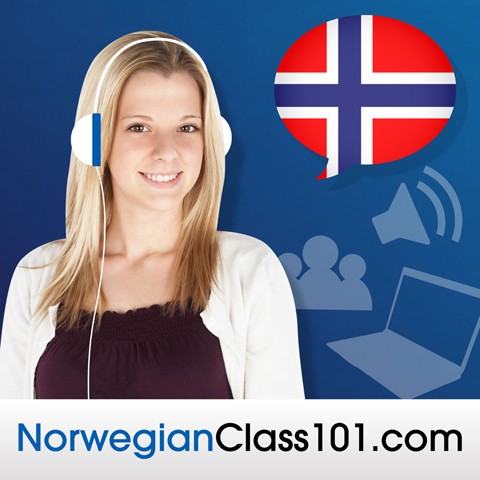
You can also check out NorwegianClass101 if you want to learn more Norwegian. Here, you can find in-depth articles and vocabulary lists, such as our Most Useful Norwegian Pronouns list! If you’re a beginner, there’s also great information on both Norwegian nouns and the most common Norwegian adjectives. Maybe you need to learn more about Norwegian sentence structure before you can learn the pronouns? Or maybe you want to have an in-depth look at how to tell time or introduce yourself before going further?
NorwegianClass101 has articles and lessons for both beginners and advanced learners, so no matter where you are in your learning curve, you’ll find something that can help you on your way to mastering the Norwegian language.
Before you go, let us know in the comments what you think about the different pronouns! Do you feel more confident now, or are you still struggling with something? To practice, write us a few sentences using different Norwegian pronouns in the comments. 🙂 We look forward to hearing from you!

Learn the Best Compliments in Norwegian for Any Occasion
What would you say to lift the spirits of a special person you know? No doubt, you have dozens of kind words that come to mind in English, but do you know many compliments in Norwegian?
A compliment can be described as a polite expression of praise, admiration, encouragement or congratulations. It’s sometimes used in absolute sincerity and sometimes to flatter, but either way, human beings love to receive compliments!
Table of Contents

1. The Importance of Compliments
Giving and receiving compliments is so important in society, that you can be considered rude if you’re a person who never acknowledges anyone. We all need to hear words of affirmation to feel good about ourselves or our achievements, whether big or small. Life is full of daily challenges that can feel overwhelming sometimes – both in terms of the things we have to accomplish and the way we look at the world.
Call it vanity, but it’s a basic human need to hear kindness and appreciation from other people. In the same way, we need to be giving out some of that kindness and helping others to feel good about themselves. Remember the saying “It’s better to give than to receive”? Well, that applies to compliments in a big way. The cool thing is that when you’re generous with your words, you more than likely will invite the same back from people.
So, where did this wonderful idea originate? The word ‘compliment’ has its origins in the mid-17th century; back then it meant ‘fulfilment of the requirements of courtesy’. There was a time when it was normal to compliment others upon meeting for the first time. In some cultures, that’s still the norm. If only we could have more of that today!
If you think about how much it means to receive a genuine compliment from someone whose opinion matters to you, it’s easy to reverse that and realize they probably feel the same way. There is no way around this: it’s vital to pay compliments to each and every person who is a part of your life, and to do so regularly and with sincerity.
2. Compliments you always want to hear
The nuances in the type of personal compliments you’ve been hearing all your life are so deeply present with you by now, that you have a very specific emotional response to each of them. It will be a little different for each of us, since we’ve had different input from the people around us since childhood – especially from family and close friends – but we’re individually used to certain words and as a result, we can detect when they’re spoken with sincerity. How we perceive and receive compliments from specific people has a lot to do with how much we value them, too.
Put yourself in a foreign country and suddenly you’re having to think about the words you’re hearing, doing mental and emotional arithmetic to determine the speaker’s intent. It’s tricky business! When you’ve only been learning Norwegian for a little while, you’ll get the gist, but some of the speaker’s truth might be lost on you.
Can you see where I’m going with this? When it comes to compliments in Norwegian, do yourself a great favor and use them often. Learn the real meaning and impact of what you’re saying, and you’ll be able to start feeling those squishy emotional responses in no time. You’ll also be able to pay genuine compliments in Norwegian that will win people over and earn you a valued place in their hearts.
A compliment in Norwegian culture is as important as one in any other culture – perhaps even more so. Part of fitting into your new community means having a likeable and approachable nature, so bring on the compliments and start winning people over!
NorwegianClass101 has fifteen great compliments to teach you for various situations. Enjoy!
1- You’re handsome. – Du er kjekk.
Do you know how to compliment a guy in Norwegian? This is one of the best Norwegian compliments you can pay a man if you want to make him feel attractive. What man doesn’t like to hear that he’s handsome? The younger generation may see it as quite an old-fashioned word, yet men of all ages respond well to “You’re handsome”.
There are many other ways to tell a guy that he’s good-looking, of course, but these particular words carry a timelessness that is only ever good. It doesn’t have any subtle meanings or flirtatious implications, so it’s pretty safe to say to a man who you have no romantic intentions with. Of course, it certainly can also be said romantically! As with most things, it’s all in the way you do it.
2- Great job! – Flott jobb!
When you’ve worked really hard at something, you want your efforts to be appreciated. There isn’t one of us who doesn’t feel that way. You might know you’ve done a great job, but you need to know that other people have noticed and are appreciative of your effort. Otherwise, why bother giving it your all? Part of our basic makeup as humans is the need to be pleasing to others.
How much more so in a work environment, where your performance could determine the trajectory of your career? We seek validation from our bosses mainly because this is vital information that tells us whether we’re heading for success or failure.
3- Your resume is impressive. – CV-en din er imponerende.
It’s pretty much a given that attending a job interview is going to be nerve-wracking and the first thing you want to be sure of is that your resume looks good to the interviewer. Hearing the above words will give you hope and help you to relax before the questions start. In other words, these are important Norwegian praise words to know if you’re job-hunting. Next time you’re being interviewed by a Norwegian boss, listen for these words, as they’re a positive sign.
In my experience working abroad, I found that the most important requirement interviewers had was just that they like me. By the time you get to the interview, you’ve already been screened, so what’s next in the deciding factor? It’s simple: chemistry. The energy between two people is a huge factor in how well you’ll work together, and that magic happens in the first ten minutes. First impressions go a long way!
4- Your inside is even more beautiful than your outside. – Du er enda vakrere på innsiden enn på utsiden.
Isn’t this just a wonderful compliment to hear? It sure is, and that makes it equally wonderful to give. If you meet someone who has a heart of gold, use these words!
Most women love to be complimented on their external beauty, but being seen as attractive can feel like a burden if it’s the only thing people notice. When paying compliments in Norwegian to a woman, try to think of her personality and what her perception of your words will be. Women want different things from different people, and someone who cares about you will care a lot about how you see her on the inside. Looks are fleeting; the people we trust to stick around forever are those who’ve seen beneath the surface and still want in.
It seems to be true that the more self-aware and ‘conscious’ a person is, the more they’re going to appreciate being valued for their place and importance in this world, above their looks. Men or women – we’re the same in this way. It doesn’t mean you should stop telling people that they’re physically beautiful, just that you should balance it with thoughtful observations about the person’s character. Psychologically, we crave this balance and without it, insecurity gets a foot in the door.
Men are no different. Compliments directed to a man’s inner core are highly prized by guys. For his self-esteem, he needs to know he is valued for who he is deep down.
5- You make me want to be a better person. – Du får meg til å ville bli en bedre person.
Do you know someone who inspires you so much, that their mere existence makes you want to move those metaphorical mountains and become the absolute best version of yourself?
This phrase is a lovely thing to say to someone who you care about on a personal level. It’s the kind of compliment reserved for the few special individuals who mean so much to us, that our greatest desire is to have them see us ‘becoming’ – not for anyone’s profit, but just for the sake of love and personal growth.
You might feel this way about a romantic partner, a very close friend or a family member. If you feel this way, don’t hold it in! That person needs to hear it. You will make them feel good and help them to know that the love they put into nurturing your heart is noticed. Chances are, they feel the same way about you.
When you look for the good in others, you start to see the good in yourself. It takes a bit of thought to come up with a string of kind words that convey maximum positive truth about the other person; in those moments, you’re being unselfish and considering their needs before your own. I genuinely believe that paying someone a heartfelt compliment is an act of self-love. After all, giving is more important than receiving. When you give out compliments that are true, you do the world a service and create beauty in your circle. What’s more, you invite reciprocated words of affirmation – whether from the same person, or someone else. When you give, it will inevitably come back to you.
6- That jacket looks nice on you. – Den jakken ser fin ut på deg.
Men secretly love to be complimented on their clothes. Yup – it makes a man feel good to hear these words, especially since a favorite jacket is something he’ll wear often in cooler weather or to work. If the fabric brings out his eyes, tell him!
Learning some practical and more specific Norwegian compliments like this one is a great idea, because it shows that you’ve actually thought about what you’re saying. Noticing details about a person’s outfit and commenting on them comes across well to the hearer and sounds more sincere than “You look good.” Think about the last time someone noticed your outfit, and you’ll know just what I mean. It makes you feel more confident as you go about your day.
7- I know that it was a tough project, but your performance exceeded my expectations. – Jeg vet at det var et tøft prosjekt, men opptreden din overgikk mine forventninger.
In the work environment, it’s vital to know some Norwegian praise words that encourage, uplift and express real appreciation. In this sense, compliments can be a form of leadership; a good leader helps his or her team to grow by building them up and pushing them on.
If you hear these Norwegian words, you can rest assured that your boss is very pleased with your work. If you’re a teacher at a Norwegian high school, this is also a great phrase to encourage learners with when they’ve worked hard on a project.
8- You’re smart! – Du er smart!
Smart, clever, brainy – these are all synonyms for intelligence and one of the best compliments you can give. Everybody likes being thought of as smart, so here’s a compliment that can be used in both casual and formal settings. We say this to boost the self-esteem of kids, to praise our friends when they have good ideas and to express awe of a colleague in the workplace.
Being ‘smart’ can mean you make good choices in general, that you have a particular area you excel in, or even that you have an above-average IQ.
Everybody likes the idea of having a high IQ, but it’s not as simple to determine what that even means as we once thought. When I was studying to work in Asia, there was a lot of buzz about Multiple Intelligences Theory as a more accurate determination of intelligence than traditional IQ testing. The theory was developed by Doctor Howard Gardner and the critical reception was complex, to say the least.
Gardner argues that there is a wide range of cognitive abilities, but that there are only very weak correlations among them. For example, a child who learns to multiply easily is not necessarily more intelligent than a child who has difficulty with this task; the child who seems better at art might actually understand multiplication at a fundamentally deeper level. Humans have different learning styles; if one appears to have difficulty grasping a certain concept, the first step is to change the teaching approach.
We’re all smart in our own way, so remind your reflection of that each morning!
9- You are an awesome friend. – Du er en fantastisk venn.
On a more personal note – how good does it make you feel to hear that your friend appreciates you? I’d say it’s right up there with the best kinds of ‘thank you’. Knowing this, it makes sense to learn this phrase in Norwegian and use it next time your Norwegian friend has done something selfless and amazing for you. Let them know with this compliment in Norwegian and make their day.
The lovely thing about using these words is that they encourage even more acts of kindness and support from friends. When you put effort and energy into a friendship and aren’t afraid to share sentiments of love, such as this phrase, chances are the friendship will go the distance. If your sojourn in Norway is more than a few weeks, you’re going to need a good friend or two, so hold on to this friendly phrase!
10- You have a great sense of humor. – Du har en god sans for humor.
Did you know that chimpanzees, gorillas, bonobos, and orangutans engage in social laughter? It’s true! Laughter is an important form of social play that connects us and helps to relieve tension. It’s nice being around someone who makes us laugh or who finds us amusing.
I have a weird sense of humor that many people don’t get, but those who do seem to end up cry-laughing a lot in my presence and somehow that makes them my favorite humans. I’ve learned who I can and can’t be funny with. Have you had a similar experience?
Being able to tell someone that you like their sense of humor is important in your social circle. In fact, take these words along with you on a date. If he or she cracks you up, they will definitely appreciate hearing you say so in Norwegian.
11- Your smile is beautiful. – Smilet ditt er vakkert.
When paying aesthetic compliments in Norwegian, especially to a woman you don’t know very well, try to avoid talking about her body and say something like “Your smile is beautiful”, instead. It’s a guaranteed winner! It can be tricky complimenting women in this modern world, where ladies don’t always feel safe, but that’s no reason to stop expressing admiration altogether. Choose your words wisely and you’ll be well on your way to making their day!
Let’s not exclude men from this compliment, though – it’s an excellent choice for a guy you like and feel safe with. In fact, the beauty of this compliment is that you can say it to pretty much anyone, of any age, and it will likely be well-received. Next time you want to make a homeless person smile – this is the better word choice!
12- I love your cooking. – Jeg elsker maten din.
If there’s one form of praise we can’t leave out, it’s how to give kudos for someone’s culinary skills. Norwegian compliments for food are a must if you want to be invited back for another home-cooked dinner at the home of the local masterchef. As much as the street food is to die for, nothing beats the experience of an authentic home-cooked meal in Norway. Be sure to read up on basic dining etiquette before you go, and don’t forget to download the Norwegian WordPower app to your phone so you can confidently ask the cook for tips.
13. You have good taste. – Du har god smak.
My sister is one of those people who’d rather be complimented on her taste than on her personality, brains or looks. Do you know someone like that? It’s usually the girl or guy in your group who’s always well-dressed and probably has a full-on feng shui vibe in their home. If you meet someone in Norway who loves their labels, only wears real leather and whose hair is always on-fleek, here’s a compliment they will appreciate.
To have good taste means knowing what is excellent and of good quality, with an eye for detecting subtle differences that make something genuine or not. People with good taste can discern what others find appealing, and tend to impress with their aesthetic choices. This friend will be the one you’ll go to when you aren’t sure what jacket to buy for your interview, or what gift to choose for your hosts.
So, is good taste about social conventions, or the genuine value of an item? Well, since it can refer to taste in music, art, design and fine wines as well as style choices, I think it’s an interesting combination of both. What do you think?
14- You look gorgeous. – Du ser praktfull ut.
“Gorgeous” makes me think of powder blue lakes, newborn babies, wild horses and Terrence Hill in the 80’s. Synonymous with ‘stunning’, it’s a word that means something beyond beautiful and as such, it’s one of the ultimate words of admiration. The vocabulary.com dictionary suggests reserving this word for the kind of looks that take your breath away; in other words, save it for someone special – like a date you adore and definitely want to see again.
Does that mean you can only tell a captivating date that they look gorgeous? Of course not. You can say “You look gorgeous” to a friend dressed up to meet their beau, a child tolerating a bunny suit for the school play, or to anyone special who needs a confidence boost. As long as you’re being sincere, this is a wonderful phrase to express admiration.
15- You have a way with words. – Du har en måte å ordlegge deg på.
There’s always that one person in the group who’s great at articulating deep thoughts, writing intriguing social media posts or comforting others when they’re feeling low. Your companion with this skill is likely very empathetic and although the words seem to come easy for them, they might find it difficult to be vulnerable.
When your friend or lover has let their guard down and shown you that soft place, don’t be afraid to tell them that it’s good, because they need to hear it. “You have a way with words” is a meaningful phrase that lets them know they’ve made a positive impact and their words are wanted. Your kind compliment will ensure that their eloquent words keep coming.
3. Conclusion
Next time you’re traveling or working in Norway, keep an ear open for the compliments you’ve learned, as they might be aimed at you! If you’re taking time to listen to native speakers on our YouTube channels or with Audio Books, it will also help a lot with the accent. Familiarizing yourself with the sound of compliments in the Norwegian culture is important for your journey and will make your overall experience more meaningful.
Being acknowledged by others helps us to feel accepted and secure, and these are two things we all want to feel when venturing into unfamiliar territory. Remember that although compliments have more impact in your own language, it’s only because you’ve spent a lifetime hearing them and have become accustomed to the fullness of their meaning. You can get there with Norwegian, too – it just takes a little time.
Don’t forget the golden rule: give more than you receive! Paying compliments to the people you meet will not only give you excellent language practice, but the reward will be new friendships and positive vibes.
Here are a few more ways you can practice daily:
- Chat online with the guys and gals in our learning community. Nothing beats real-time information on how people are currently speaking. It’s a good way to hear some Norwegian colloquialisms.
- Take time out to read. Reading is an excellent way to develop photographic memory of how the phrases look in Norwegian. We have both iBooks and Kindle books to choose from.
- There are also some fantastic free podcasts you can listen to on iTunes. They promise to get you speaking after the very first lesson.
One last thought I want to leave you with: don’t forget to receive a compliment with grace. You deserve to hear good words, so get used to smiling and just feeling the kindness with gratitude.
Well, time for me to go! I hope you’ve enjoyed learning these useful compliments with us at NorwegianClass101 today. Now, go out and find some cool people who need to hear them!

Get Angry in Norwegian with Phrases for Any Situation!
Anger is a natural response to pain of some sort; when you’re angry, you’re angry with a cause and want someone to pay! It’s so much harder when you’re traveling, because your routines are off-kilter, there’s culture shock to deal with and the smallest problems can seem overwhelming. How do you handle someone who’s just pushed your last button?
At home, we often have a go-to person who is good at calming us down, but emotions are tricky to deal with in a foreign country. Sometimes people may treat you unfairly, but you’re completely baffled as to why. You have to remember that people in Norway think differently to how you do and it’s not impossible to inadvertently cause offense. Don’t stress about it too much, because you’ll adapt! Once you feel at home in Norway and people get to know you, it will be easy to flow with the local rhythm and handle tensions well.
This brings us to two obvious reasons why you should learn some angry phrases in Norwegian: first, so you can understand when you’ve upset a Norwegian person, and second, to have the vocabulary to tell a person off when they absolutely have it coming. Not only will you be far more likely to solve the problem if you know some appropriate angry Norwegian phrases, but you’ll probably earn some respect, too! At NorwegianClass101 we’re ready to help you articulate those feelings.

Table of Contents
1. Norwegian phrases to use when you’re angry
Okay, so you’ve had a very frustrating day at your new teaching job in Norway and all you want to do is chill on your bed with ice-cream and a Nook Book, but you come home to find your landlord in your apartment, apparently doing an inspection of your personal possessions. How do you handle it? Do you have an angry Norwegian translation for “What the heck are you doing?”
If there’s one thing I’ve learned about confronting someone in their own country, it’s to press the pause button on my reactions and think first! Is my first thought worth expressing? Sometimes, you need to think like a chess player: if I make this move, what will happen next?
It’s always better to think ‘win-win’ in Norway. A good tactic is to keep a mental note of your personal speed limit before engaging. After all, you want a positive outcome!
So, do you know how to say “I am angry” in Norwegian? You will – NorwegianClass101 is about to teach you how to get mad! Here are fifteen great angry phrases in Norwegian.
1- It’s none of your business. – Det er ikke ditt problem.
As a foreigner in Norway, you’ll be a topic of interest. While most folks understand boundaries, there’s always that one individual who doesn’t!
Sometimes you feel that a person is getting way too involved in your affairs, and this expression is a commonly-used one for letting them know that. If said calmly and firmly, while looking them in the eye, it should do the trick and even earn you some respect.
2- I’m upset. – Jeg er lei meg.
I find this phrase useful for times when I need to express annoyance to someone I can’t afford to lose my temper with. A boss, for instance. As long as you say it without yelling, this can be a polite way of letting someone know that you are feeling bad and that you want those feelings validated. No matter what has happened, the result is that you are troubled and need some time to get over it. Depending on how you say it, “I’m upset” can also be a subtle invitation for the other party to address the problem.
3- You’re not listening to me. – Du hører ikke etter.
Isn’t this the most frustrating thing? You’re in a situation where you’re telling someone why you’re mad at them, but they just won’t look at the story from your point of view. Rather than resort to bad language, try to convince them to take a breather and hear you out. This expression is a great way to ask someone to stop talking and to listen to you properly.
4- Watch your mouth. – Pass på hva du sier.
Where have you heard this before? Let your mind go back to all the times you were cheeky and disrespectful in your youth… that’s right – it was your parents! If you’re on the receiving end, this angry phrase means that you said something you shouldn’t have. It has an authoritative, challenging tone and it implies that there could be consequences if you don’t stop.
So, when can you use it? Well, be careful with this one; it may very well get you in trouble if not used with caution. It can also be seen as very rude if used on anyone you don’t actually have authority over!
5- That’s enough. – Nå er det nok.
Depending on your tone of voice when you say this, you could be calmly telling someone to stop doing what they’re doing, or you could be sternly ordering them to stop. In Norwegian, as in English, tone is key when it comes to making yourself understood. Just don’t be saying this to anyone, as it carries an authoritative tone and would be seen as rude if said to an older person.
6- Stop it. – Slutt med det.
One of the more common imperatives in any language, this is a basic way to warn somebody that you don’t like what they’re doing and want them to stop. You can use it in most situations where a person is getting under your skin. Often, “Stop it” precedes some of the weightier phrases one resorts to if the offender doesn’t stop and anger escalates. For this reason, I always add a “Please” and hope for the best!
7- Cut it out. – Kutt ut.
I think parents and teachers everywhere, throughout time, have heard variations of this expression of annoyance for as long as we’ve had tweens and teens on Earth! It’s a go-to command, thrown about frequently between siblings and peers, to stop being irritating. You’d generally use this on people you consider your relative equals – even though in the moment, you probably consider them low enough to stomp on!
8- What the heck are you doing? – Hva pokker er det du gjør?
Here’s an interjection for those instances when you can scarcely believe what you’re seeing. It denotes incredulity ranging from mild disbelief to total disgust or dismay. You would typically use this when you want an action to stop immediately, because it’s wrong – at least, in your perception of things.
It may be worth remembering that the English word “heck” doesn’t have a direct translation in Norwegian – or in other languages, for that matter; most translations are more accurately saying “What the hell.” We say “heck” in English as a euphemism, but that word is thought to come from “hex” – an ancient word for “spell” – so I don’t know which is better!
9- Who do you think you are? – Hvem tror du at du er?
I avoid this expression as it makes me nervous! It’s quite confrontational. I’m reminded of the time a clerk in a busy cellular network service store was being rude to me and a rich-looking man came to my rescue, aiming this phrase at the clerk loudly and repeatedly. At first, I was relieved to have someone on my side, but I quickly grew embarrassed at the scene he was causing.
Using this phrase has a tendency to make you sound like you feel superior, so take it easy. The irony, of course, is that someone who provokes this response is taking a position of authority or privilege that they aren’t entitled to! Now you look like two bears having a stand-off.
They call this an ‘ad hominem’ argument, meaning the focus has shifted from attacking the problem, to attacking the person. So, is it a good phrase to use? That’s up to you. If you’re in the moment and someone’s attitude needs adjusting – go for it!
10- What?! – Hva?!
An expression of disbelief, this is frequently said mid-argument, in a heated tone, and it means you cannot believe what you’re hearing. In other words, it conveys the message that the other person is talking nonsense or lying.
11- I don’t want to talk to you. – Jeg vil ikke snakke med deg.
This is a great bit of vocab for a traveler – especially for a woman traveling solo. Whether you’re being harassed while trying to read your Kindle on the train, or hit on by a drunk man in a bar, chances are that sooner or later, you will encounter a character you don’t wish to speak to.
The most straightforward way to make the message clear is to simply tell them, “I don’t want to talk to you”. If you feel threatened, be calm and use your body language: stand straight, look them in the eye and say the words firmly. Then move away deliberately. Hopefully, they will leave you alone. I’d go so far as to say learn this phrase off-by-heart and practice your pronunciation until you can say it like a strong modern Norwegian woman!
12- Are you kidding me? – Tuller du med meg?
To be ‘kidding’ means to joke with someone in a childlike way and it’s used both in fun and in anger. Like some other expressions, it needs context for the mood to be clear, but it pretty much conveys annoyed disbelief. You can use it when a person says or does something unpleasantly surprising, or that seems unlikely to be serious or true. It’s a rhetorical question, of course; try to familiarize yourself with how it sounds in Norwegian, so next time it’s aimed at you, you don’t hunt your inner Norwegian lexicon for an answer!
13- This is so frustrating. – Dette er så frustrerende.
Another way of showing someone you have an intense battle going on inside, is to just tell them you’re terribly frustrated and feeling desperate to find a solution. Use this expression! It can be a useful tool to bring the other person into your headspace and maybe even evoke some degree of empathy from them. More polite than many others, it’s a sentence that seems to say, “I beg you to work with me so we can resolve this!”
14- Shut up. – Hold kjeft.
The use of the phrase “shut up” to signify “hold one’s tongue” dates back to the sixteenth century and was even used by Shakespeare as an insult – with various creative twists! It’s been evolving ever since and there are variations in just about every language – proving that no matter where you come from, angry emotions are universal!
One example of old usage is a poem Rudyard Kipling wrote in 1892, where a seasoned military veteran says to the troops: “Now all you recruities what’s drafted to-day, You shut up your rag-box an’ ‘ark to my lay.”
Well, when I was twelve and full of spirit, I was taught that nice girls don’t say this. “Shut up” is an imperative that’s considered impolite; it’s one of those expressions people resort to when they either can’t think of better words to use, or simply can’t bear to listen to any more nonsense. Either way, it’s at the lower end of the smart argument scale. Like all angry phrases, though, it does have its uses!
15- So what? – Og så?
When you don’t believe the other person’s defense argument legitimizes or justifies their actions, you might say these words. Basically, you’re telling them they need to come up with better logic!
Another time you could use this one, is when you simply don’t care for someone’s criticism of you. Perhaps you don’t agree with them, or they’re being unfair and you need to defend your position. “So what?” tells them you feel somewhat indignant and don’t believe you’re in the wrong.
2. Feeling negative in Norwegian
What was the most recent negative emotion you felt? Were you nervous about an exam? Exhausted and homesick from lack of sleep? Maybe you felt frightened and confused about the impact COVID-19 would have on your travel plans. If you’re human, you have days when you just want the whole world to leave you alone – and that’s okay!
When you’re feeling blue, there’s only so much body language can do. Rather than keeping people guessing why you’re in a bad mood, just tell them! Your Norwegian friends and colleagues will be much more likely to give you your space (or a hug) if they know what’s wrong. Not only that, but it’s nice to give new friends the opportunity to be supportive. Bring on the bonding!
The fastest way to learn to describe negative feelings in Norway, is to get into the habit of identifying your own mood daily in Norwegian. Here’s an easy way: in your travel journal, simply write down the Norwegian word for how you feel each morning. You can get all the words directly from us at NorwegianClass101. Remember, also, that we have a huge online community if you need a friend to talk to. We’ve got you!
3. Conclusion
Now that you know how to express your bad feelings in Norwegian, why not check out some other cool things on our site? You can sign up for the amazing free lifetime account – it’s a great place to start learning!
And really – make the most of your alone time. After all, it’s been proven that learning a new language not only benefits cognitive abilities like intelligence and memory, but it also slows down the brain’s aging. So, on those days when you just need to be away from people, we have some brain-boosting suggestions that will lift your spirits:
- Have you heard of Roku? A Roku player is a device that lets you easily enjoy streaming, which means accessing entertainment via the internet on your TV. We have over 30 languages you can learn with Innovative Language TV. Lie back and enjoy!
- If you like your Apple devices, we have over 690 iPhone and iPad apps in over 40 languages – did you know that? The Visual Dictionary Pro, for example, is super fun and makes learning vocab easy. For Android lovers, we have over 100 apps on the Android market, too.
- You can also just kick back on the couch and close your eyes, letting your headphones do the work with our audiobooks – great for learning the culture while you master the language. Similarly, if you’re more of a reader, we have some fantastic iBooks that are super interesting and fun for practicing your daily conversation skills.
Whatever your learning style (or your mood), you’ll find something that appeals to you at NorwegianClass101. Come join us!

Arbeidernes dag: Celebrating Labor Day in Norway
In Norway, Labor Day is an important holiday for workers and is often marked by demonstrations for more employees’ rights. In this article, you’ll learn much more about how Norway observes Labor Day, what major event happened on this day in 1980, and some useful vocabulary.
Let’s get started.

1. What is Labor Day?
Let’s begin with a little Labor Day history. In 1947, Labor Day became an official fridag (“holiday” ) in Norway, though it was really celebrated since 1890. One of the most significant events in the history of this holiday was the Haymarket Affair in 1886 in the United States, during which people protested for an eight-hour workday. Over time, more requests and ideals have been put forth, and today, Norwegians still seek greater equality and solidarity.
This is a special day for workers to take the day off and hvile (“rest” ). For many people, this day is also an opportunity to put on demonstrations for better employees’ rights and greater frihet (“liberty” ) for workers. Of course, like the rest of the world, on Labor Day, Norway seeks to honor workers and celebrate the gains the working class has achieved over the years.
-
→ For some useful words, study our vocabulary list on Jobs / Work.
2. When is Labor Day in Norway?
Each year, Norwegians celebrate Labor Day on May 1. This is the same date that the rest of the world celebrates, with the exception of the United States, which celebrates on the first Monday of September.
-
→ Learn the Top 5 Dates During the Norwegian Calendar Year!
3. Norwegian Labor Day Traditions
In Norway, Labor Day is still a time for people to demonstrere (“demonstrate” ) for rights, though it’s also a day of celebration for those rights already gained. If you happen to be in Norway during Labor Day, you may hear people giving speeches or see them marching in parades with music. Another common Labor Day event is concerts, during which people listen to music, sing, dance, and even watch plays.
Some people simply opt to stay at home and remain fri (“disengaged” ) from the activities outside. They may spend time with family and friends, chill out by themselves in front of the TV, or even go on a walk in nature.
Sometimes, people are lucky enough to have a full Labor Day weekend, depending on when May 1 is that year. In this case, there’s even more time for rest!
-
→ NorwegianClass101.com has a list of the Top 10 Weekend Activities. Check it out to see what Norwegians might do during their time off.
4. Blitz Movement
What do you think happened on Labor Day in 1980?
On the night of May 1, 1980, many young people went ballistic, and this resulted in radical youth occupying buildings in cities such as Tromsø and Oslo. This was the beginning of something called the Blitz movement. The Blitz movement is a group of people, called the Blitzers, who are left-wing radicals.
5. Must-Know Vocabulary for Labor Day in Norway
Ready to review some of the vocabulary words from this article? Here’s a list of the most important words and phrases for Labor Day in Norway!
- Hvile — “Rest” [v.]
- Arbeider — “Worker” [n. masc]
- Jobbe — “Work” [v.]
- Fridag — “Holiday” [n. masc]
- Arbeidernes dag — “Labor Day” [n. masc]
- Demonstrasjon — “Demonstration” [n. masc]
- Demonstrere — “Demonstrate” [v.]
- Tale — “Speech” [n. masc]
- Frihet — “Liberty” [n. masc]
- Fri — “Disengaged” [adj.]
To hear the pronunciation of each word, and to read them alongside relevant images, be sure to check out our Norwegian Labor Day vocabulary list!
Final Thoughts
We hope you enjoyed learning about International Labor Day in Norway with us, and that you took away some valuable information.
How do Labor Day traditions in Norway compare to traditions in your country? Let us know how you celebrate Labor Day in the comments section!
If you’re interested in learning more about Norwegian culture and the language, check out the following pages on NorwegianClass101.com:
- Summer Solstice Celebration: Midsummer Day in Norway
- How to Celebrate Norwegian Independence Day
- Learn How to Talk About Your Family in Norwegian
- The Norwegian Calendar: Talking About Dates in Norwegian
- How to Say I Love You in Norwegian – Romantic Word List
For even more fantastic Norwegian-learning content, create your free lifetime account today, or upgrade to our Premium or Premium PLUS plans to get exclusive content to help you learn Norwegian faster.
Happy Labor Day! 🙂

Essential Vocabulary for Life Events in Norwegian
What is the most defining moment you will face this year? From memories that you immortalize in a million photographs, to days you never wish to remember, one thing’s for certain: big life events change you. The great poet, Bukowski, said, “We are here to laugh at the odds and live our lives so well, that death will tremble to take us.” The older I get, the more I agree with him!
Talking about significant events in our lives is part of every person’s journey, regardless of creed or culture. If you’re planning to stay in Norway for more than a quick visit, you’re sure to need at least a few ‘life events’ phrases that you can use. After all, many of these are shared experiences, and it’s generally expected that we will show up with good manners and warm wishes.

Table of Contents
1. Life Events
Do you know how to say “Happy New Year” in Norwegian? Well, the New Year is a pretty big deal that the whole world is in on! We celebrate until midnight, make mindful resolutions, and fill the night sky with the same happy words in hundreds of languages. No doubt, then, that you’ll want to know how to say it like a local!
Big life events are not all about fun times, though. Real life happens even when you’re traveling, and certain terminology will be very helpful to know. From talking about your new job to wishing your neighbors “Merry Christmas” in Norwegian, here at NorwegianClass101, we’ve put together just the right vocabulary and phrases for you.
1- Birthday – bursdag
If you’re like me, any excuse to bring out a pen and scribble a note is a good one. When there’s a birthday, even better: hello, handwriting!
Your Norwegian friend will love hearing you wish them a “Happy birthday” in Norwegian, but how much more will they appreciate a thoughtful written message? Whether you write it on their Facebook wall or buy a cute card, your effort in Norwegian is sure to get them smiling! Write it like this:
Gratulerer med dagen
Now that you know the words, I challenge you to put them to music and sing your own “Happy birthday” song in Norwegian! It’s not impossible to figure out even more lyrics, once you start discovering the language from scratch.
2- Buy – kjøpe
If there’s a special occasion, you might want to buy somebody a gift. As long as you’ve checked out Norwegian etiquette on gift-giving (do a Google search for this!), it will be a lovely gesture. If you’re not sure what to buy, how about the awesome and universally-appealing gift of language? That’s a gift that won’t stop giving!
3- Retire – pensjonere seg
If you’re planning to expand your mind and retire in Norway, you can use this word to tell people why you seem to be on a perpetual vacation!
Retirement is also a great time to learn a new language, don’t you think? And you don’t have to do it alone! These days it’s possible to connect to a vibrant learning community at the click of a button. The added benefit of a Daily Dose of Language is that it keeps your brain cells alive and curious about the world. After all, it’s never too late to realize those long-ignored dreams of traveling the globe…
4- Graduation – avgangseksamen
When attending a graduation ceremony in Norway, be prepared for a lot of formal language! It will be a great opportunity to listen carefully and see if you can pick up differences from the everyday Norwegian you hear.
5- Promotion – forfremmelse
Next to vacation time, receiving a promotion is the one career highlight almost everyone looks forward to. And why wouldn’t you? Sure, it means more responsibility, but it also means more money and benefits and – the part I love most – a change of scenery! Even something as simple as looking out a new office window would boost my mood.
6- Anniversary – jubileum
Some anniversaries we anticipate with excitement, others with apprehension. They are days marking significant events in our lives that can be shared with just one person, or with a whole nation. Whether it’s a special day for you and a loved one, or for someone else you know, this word is crucial to know if you want to wish them a happy anniversary in Norwegian.
7- Funeral – begravelse
We tend to be uncomfortable talking about funerals in the west, but it’s an important conversation for families to have. Around the world, there are many different customs and rituals for saying goodbye to deceased loved ones – some vastly different to our own. When traveling in Norway, if you happen to find yourself the unwitting observer of a funeral, take a quiet moment to appreciate the cultural ethos; even this can be an enriching experience for you.
8- Travel – å reise
Travel – my favorite thing to do! Everything about the experience is thrilling and the best cure for boredom, depression, and uncertainty about your future. You will surely be forever changed, fellow traveler! But you already know this, don’t you? Well, now that you’re on the road to total Norwegian immersion, I hope you’ve downloaded our IOS apps and have your Nook Book handy to keep yourself entertained on those long bus rides.
9- Graduate – gå av med eksamen
If you have yet to graduate from university, will you be job-hunting in Norway afterward? Forward-looking companies sometimes recruit talented students who are still in their final year. Of course, you could also do your final year abroad as an international student – an amazing experience if you’d love to be intellectually challenged and make a rainbow of foreign friends!
10- Wedding – bryllup
One of the most-loved traditions that humans have thought up, which you’ll encounter anywhere in the world, is a wedding. With all that romance in the air and months spent on preparations, a wedding is typically a feel-good affair. Two people pledge their eternal love to each other, ladies cry, single men look around for potential partners, and everybody has a happy day of merrymaking.
Ah, but how diverse we are in our expression of love! You will find more wedding traditions around the world than you can possibly imagine. From reciting love quotes to marrying a tree, the options leave no excuse to be boring!
11- Move – flytte
I love Norway, but I’m a nomad and tend to move around a lot, even within one country. What are the biggest emotions you typically feel when moving house? The experts say moving is a highly stressful event, but I think that depends on the circumstances. Transitional periods in our lives are physically and mentally demanding, but changing your environment is also an exciting adventure that promises new tomorrows!
12- Be born – født
I was not born in 1993, nor was I born in Asia. I was born in the same year as Aishwarya Rai, Akon, and Monica Lewinsky, and on the same continent as Freddy Mercury. When and where were you born? More importantly – can you say it in Norwegian?
13- Get a job – få en jobb
The thought of looking for a job in a new country can be daunting, but English speakers are in great demand in Norway – you just have to do some research, make a few friends and get out there! Also, arming yourself with a few Norwegian introductions that you can both say and write will give you a confidence boost. For example, can you write your name in Norwegian?
14- Die – dø
Death is a universal experience and the final curtain on all other life events. How important is it, then, to fully live before we die? If all you have is a passport, a bucket list, and a willingness to learn some lingo, you can manifest those dreams!
15- Home – hjem
If home is where the heart is, then my home is on a jungle island completely surrounded by the turquoise ocean. Right now, though, home is an isolation room with a view of half a dry palm tree and a tangle of telephone wires.
If you’re traveling to Norway for an extended stay, you’ll soon be moving into a new home quite unlike anything you’ve experienced before!
16- Job – jobb
What job do you do? Does it allow you much time for travel, or for working on this fascinating language that has (so rightfully) grabbed your attention? Whatever your job, you are no doubt contributing to society in a unique way. If you’re doing what you love, you’re already on the road to your dream. If not, just remember that every single task is one more skill to add to your arsenal. With that attitude, your dream job is coming!
17- Birth – fødsel
Random question: do you know the birth rate of Norway?
If you’re lucky enough to be invited to see a friend’s baby just after they are born, you’ll have all my respect and all my envy. There is nothing cuter! Depending on which part of the country you’re in, you may find yourself bearing witness to some pretty unexpected birth customs. Enjoy this privilege!
18- Engaged – forlovet
EE Cummings said, “Lovers alone wear sunlight,” and I think that’s most true at the moment she says “yes.” Getting engaged is something young girls dream of with stars in their eyes, and it truly is a magical experience – from the proposal, to wearing an engagement ring, to the big reveal!
In the world of Instagram, there’s no end to the antics as imaginative couples try more and more outrageous ways to share their engagement with the world. I love an airport flashmob, myself, but I’d rather be proposed to on a secluded beach – salt, sand, and all!
Engagement customs around the world vary greatly, and Norway is no exception when it comes to interesting traditions. Learning their unique romantic ways will inspire you for when your turn comes.
Speaking of romance, do you know how to say “Happy Valentine’s Day” in Norwegian?
19- Marry – gifte
The one you marry will be the gem on a shore full of pebbles. They will be the one who truly mirrors your affection, shares your visions for the future, and wants all of you – the good, the bad and the inexplicable.
From thinking up a one-of-a-kind wedding, to having children, to growing old together, finding a twin flame to share life with is quite an accomplishment! Speaking of which…
2. Marriage Proposal Lines
Ah, that heart-stopping moment when your true love gets down on one knee to ask for your hand in marriage, breathlessly hoping that you’ll say “Yes!” If you haven’t experienced that – well, it feels pretty darn good, is all I can say! If you’re the one doing the asking, though, you’ve probably had weeks of insomnia agonizing over the perfect time, location and words to use.
How much more care should be taken if your love is from a different culture to yours? Well, by now you know her so well, that most of it should be easy to figure out. As long as you’ve considered her personal commitment to tradition, all you really need is a few words from the heart. Are you brave enough to say them in Norwegian?
3. Talking About Age
Part of the wonder of learning a new language is having the ability to strike up simple conversations with strangers. Asking about age in this context feels natural, as your intention is to practice friendly phrases – just be mindful of their point of view!
When I was 22, I loved being asked my age. Nowadays, if someone asks, I say, “Well, I’ve just started my fifth cat life.” Let them ponder that for a while.
In Norway, it’s generally not desirable to ask an older woman her age for no good reason, but chatting about age with your peers is perfectly normal. Besides, you have to mention your birthday if you want to be thrown a birthday party!
4. Conclusion
Well, there you have it! With so many great new Norwegian phrases to wish people with, can you think of someone who has a big event coming up? If you want to get even more creative, NorwegianClass101 has much to inspire you with – come and check it out! Here’s just some of what we have on offer at NorwegianClass101:
- Free Resources: Sharing is caring, and for this reason, we share many free resources with our students. For instance, start learning Norwegian with our basic online course by creating a lifetime account – for free! Also get free daily and iTunes lessons, free eBooks, free mobile apps, and free access to our blog and online community. Or how about free Vocabulary Lists? The Norwegian dictionary is for exclusive use by our students, also for free. There’s so much to love about NorwegianClass101…!
- Innovative Learning Tools and Apps: We make it our priority to offer you the best learning tools! These include apps for iPhone, iPad, Android and Mac OSX; eBooks for Kindle, Nook, and iPad; audiobooks; Roku TV and so many more. This means that we took diverse lifestyles into account when we developed our courses, so you can learn anywhere, anytime on a device of your choice. How innovative!
- Live Hosts and One-on-One Learning: Knowledgeable, energetic hosts present recorded video lessons, and are available for live teaching experiences if you upgrade. This means that in the videos, you get to watch them pronounce those tongue-twisters, as if you’re learning live! Add octane to your learning by upgrading to Premium Plus, and learn two times faster. You can have your very own Norwegian teacher always with you, ensuring that you learn what you need, when you need to – what a wonderful opportunity to master a new language in record time!
- Start Where You Are: You don’t know a single Norwegian word? Not to worry, we’ve absolutely got this. Simply enroll in our Absolute Beginner Pathway and start speaking from Lesson 1! As your learning progresses, you can enroll in other pathways to match your Norwegian level, at your own pace, in your own time, in your own place!
Learning a new language can only enrich your life, and could even open doors towards great opportunities! So don’t wonder if you’ll regret enrolling in NorwegianClass101. It’s the most fun, easy way to learn Norwegian.

Karneval: Celebrating the Carnival Holiday in Norway
The Carnival holiday is a major Christian celebration in many cultures around the world. In this article, you’ll learn some Carnival holiday facts and gain some knowledge into how Norwegians, in particular, celebrate this holiday.
Are you ready? Let’s get started.

1. What is the Carnival Holiday?
Celebrated by Chrisitan communities around the world, Carnival (sometimes called Shrovetide) is a religious holiday that precedes the Lenten fasting period. This holiday is known for an array of celebrations and traditions, all of which tend to center on the idea of fun, indulgence, and the reversing of social order.
In the past, people relied on stored and preserved food throughout the winter months, meaning that there was little food available once the season ended. It was crucial that any highly perishable food still left over, such as butter and meat, was eaten promptly before the start of spring. To survive the final days of winter, people would finish off all of the remaining food stores, ensuring that everyone had enough sustenance to keep them going until spring.
Over time, this season became the Carnival holiday. Instead of simply eating richer foods to survive the winter, people now indulge themselves in preparation for Lent. This holiday combines elements of Christianity and folktales passed on from the medieval ages.
-
→ Check out this religion-related vocabulary list for some useful Norwegian words!
2. Carnival Dates
Carnival takes place on the final Sunday before Lent each year. For your convenience, here’s a list of this holiday’s date for the next ten years.
- 2020: February 23
- 2021: February 14
- 2022: February 27
- 2023: February 19
- 2024: February 11
- 2025: March 2
- 2026: February 15
- 2027: February 7
- 2028: February 27
- 2029: February 11
3. Celebrating Karneval in Norway
Carnival celebrations and traditions vary slightly from culture to culture, but they all share a few common threads. For example, no matter where you are, Carnival celebrations will involve eating some kind of rich food and taking part in holiday Carnival games or activities.
Norwegian holiday traditions for Karneval include dressing up in costumes and attending balls (the most famous of which is the Oslo opernball, or “Oslo operaball“). These balls are similar to masquerades, with many people wearing masks. Children like to dress up and receive candy from people, which is why some people consider Karneval to be the Nordic version of Halloween. Decorated fastelavnsris (“birch” branches) are another common element of the Norway Carnival season, often seen during or after balls.
Another favorite celebration is that of the Fastelavnsbolle, or “Shrovetide bun,” the most popular of Carnival holiday foods. This is a delicious, soft bun that’s filled with either whipped cream or almond paste. Sometimes, Carnival is also called Bun Sunday for this reason. In addition to the Shrovetide buns, other popular Norwegian holiday foods include waffles, pancakes, and an array of other sweet treats.
-
→ If your sweet tooth is getting the best of you, check out our lesson on Sweets and Desserts in Norway!
→ We also have a lesson on common Norwegian meals, if you’re curious.
4. The Birch Tree
Do you know why the bjørk, or “birch tree,” is such a significant aspect of Carnival in Norway?
The birch tree, in folklore, is considered a symbol of many things associated with spring: new beginnings, beauty, adaptability, and fertility. In particular, this tree is often associated with goddesses of love and fertility.
5. Must-Know Vocabulary for Carnival
Ready to review some of the vocabulary words from this article? Here’s the essential Norwegian vocabulary for Carnival!
- Kostyme — “Costume”
- Fastelavn — “Shrovetide”
- Karneval — “Carnival”
- Oslo opernball — “Oslo operaball”
- Fjær — “Feather”
- Fastelavnsbolle — “Shrovetide bun”
- Kle seg ut — “Dress up”
- Ansiktsmaling — “Facepaint”
- Bjørk — “Birch tree”
- Fastelavnsris — “Birch”
To hear the pronunciation of each word, and to read each one alongside relevant images, check out our Norwegian Carnival vocabulary list!
Final Thoughts
We hope you enjoyed learning about Karneval with us. Do you celebrate this holiday in your country? Let us know in the comments!
If you’re interested in learning more about Norway’s unique culture or Norwegian holidays, check out the following pages on NorwegianClass101.com:
- All About Norwegian Culture and Society
- Norwegian Sami Culture: What is Sami National Day in Norway?
- Summer Solstice Celebration: Midsummer Day in Norway
- Essential Idioms That Will Make You Sound Like a Native Speaker
- Tourist Attractions in Norway
Whatever your reasons for developing an interest in Norwegian culture or the language, know that NorwegianClass101.com is the best way to expand your knowledge and improve your skills. With tons of fun lessons for beginners, intermediate learners, and more advanced students, there’s something for everyone!
Create your free lifetime account today, and start learning Norwegian like never before.

Morsdag: Celebrating Mother’s Day in Norway
Each year for its national Mother’s Day, Norway is abuzz with advertisements for the perfect Mother’s Day gifts and services. While overly commercial these days, celebrating Mother’s Day in Norway has become a huge occasion, and children—young and grown—are sure to honor their mothers with gifts and other expressions of gratitude.
In this article, you’ll learn how Mother’s Day is celebrated in Norway as well as how this holiday got started here.
Are you ready? Let’s go!

1. What is Mother’s Day in Norway?
Like Mother’s Day in the rest of the world, this holiday in Norway is a special day dedicated to honoring one’s mother and showing her appreciation. Because mothers do so much for their children and make so many personal sacrifices, people make sure to express their deepest gratitude and respect on this day. This often takes the form of gift-giving or general pampering!
Young children aren’t the only ones to participate in Mother’s Day. Adult children may visit their mothers, give them a call, or send them a letter of gratitude. A gift of chocolate (sjokolade) or a gift certificate (gavekort) are always welcome!
Mother’s Day is also the perfect opportunity for husbands to spoil their wives, and for other men to show the women in their lives how much they mean to them.
2. Mother’s Day Date
Norwegians celebrate and honor their mothers each year on the second Sunday (søndag) of February. For your convenience, here’s a list of this holiday’s date for the next ten years.
- 2020: February 9
- 2021: February 14
- 2022: February 13
- 2023: February 12
- 2024: February 11
- 2025: February 9
- 2026: February 8
- 2027: February 14
- 2028: February 13
- 2029: February 11
3. Norwegian Mother’s Day Traditions
Unfortunately, no special traditions are related to the celebration of Mother’s Day, but it is common to mark it.
Mother’s Day, like Valentine’s Day, has become a very commercial holiday. Several stores promote the day with gifts, cakes, and flowers for Mother’s Day, and it’s clear that the holiday has become ingrained in Norwegian society. Several weeks before the day itself, commercial posters are posted in the stores, and several TV and radio stations advertise gift-giving for Mother’s Day.
Even though it is “commercialized,” people still appreciate this day. The most common way to celebrate is to treat moms and give them a little extra attention, often in the form of gifts and flowers. In elementary schools, teachers help children in Norway celebrate Mother’s Day by giving them an hour or two to make cards and gifts for their mothers.
In Norway, the most common thing is to wake up your mom and surprise her with breakfast in bed, or frokost på sengen. Norwegian mothers often receive a breakfast of tasty bread rolls and freshly brewed coffee, and the breakfast is sometimes accompanied by a gift and flowers.
4. Origins of Mother’s Day in Norway
In 1919, two women—Dorothea Schjoldager and Karen Platou—worked to get Mother’s Day celebrated on a Sunday in February. Why Mother’s Day is celebrated in February instead of in May, like it is in many other countries, is probably because Norway already has a lot of holidays in May.
The first Mother’s Day celebration was in Bergen on February 9, 1919. Back then, the day was celebrated in a Methodist Church. Historically, Mother’s Day was held by religious organizations, but in more recent years, the day has become a family day.
5. Essential Mother’s Day Vocabulary
Are you ready to study some of the Norwegian vocabulary words and phrases from this article? Here’s a list of the most important Mother’s Day vocabulary words!
- Søndag — “Sunday”
- Sønn — “Son”
- Datter — “Daughter”
- Mor — “Mother”
- Sjokolade — “Chocolate”
- Middag — “Dinner“
- Rose — “Rose”
- Elske — “Love”
- Gave — “Present”
- Gratulasjonskort — “Greeting card”
- Morsdag — “Mother’s Day”
- Feire — “Celebrate”
- Gavekort — “Gift certificate”
- Frokost på sengen — “Breakfast in bed”
To hear the pronunciation of each word or phrase, and to read them alongside relevant images, be sure to check out our Norwegian Mother’s Day vocabulary list!
Final Thoughts
We hope you enjoyed learning about Norwegian Mother’s Day with us! As you can see, this is a popular holiday in Norway nowadays, and the country celebrates mothers on a large scale.
What do Mother’s Day celebrations look like in your country? Let us know in the comments, and read how your fellow Norwegian learners celebrate!
If you’re interested in learning more about Norwegian holidays and culture, you may find the following pages useful:
- Norwegian Sami Culture: What is Sami National Day in Norway?
- How to Celebrate Norwegian Independence Day
- Summer Solstice Celebration: Midsummer Day in Norway
- What’s Your Favorite Norwegian Food?
- Top 5 Things You Need to Know About Norwegian Pop Culture
Whatever your reasons for developing an interest in Norwegian culture or the language, know that NorwegianClass101.com is the best place to broaden your knowledge and improve your language skills! With tons of lessons for beginners, intermediate learners, and more advanced students, there’s something for everyone.
What are you waiting for? Create your free lifetime account today and start learning Norwegian like never before.
Lykkelig Morsdag! (“Happy Mother’s Day!” in Norwegian) 😀

The Norwegian Calendar: Talking About Dates in Norwegian
Did you know there are many different types of calendars?
As you probably know – a calendar is a system of organizing days in weeks and months for specific purposes, according to Wikipedia.
Worldwide, most countries use the Gregorian calendar. Some just work on the same framework, meaning that time is divided into units based on the earth’s movement around the sun – the “solar calendar”. Other calendars keep time by observing the moon’s movements, a combination of the moon and the sun’s movements, and seasons.
Through NorwegianClass101, you can learn all about this and so much more! Our themed, culturally relevant lessons are skillfully designed so you can do your planning perfectly for a holiday or a date.
Having a good plan for a visit or a trip is like studying well for an exam. You’re just so much better prepared! For that, you could well need specific phrases to plan around appointments and such, especially on business trips. Make sure to use the charts we provide here with the days of the week in Norwegian, as well as the months in Norwegian to navigate your way as you plan. Great resources!
Also – always remember to have fun!
Table of Contents
- Why Will It Help To Know How To Talk About Dates in Norwegian?
- Talking About your Plans
- Can NorwegianClass101 Help You In Other Ways Too?

1. Why Will It Help To Know How To Talk About Dates in Norwegian?
Well, that’s not a difficult question to answer. No matter why you’re travelling, it would be best to at least know the names of days and months in Norwegian. You don’t want to miss your flight or an appointment because you confused “fredag” (Friday) with “lørdag” (Saturday)! Or maybe you planned a holiday for “juli” (July), but you booked a flight for “juni” (June) by accident!
Avoid this confusion by learning the Norwegian calendar before you leave.
Now, as promised, the 15 phrases to help you make and discuss plans.
2. Talking About your Plans
Perhaps you’re working in Norway, or maybe you’re enjoying a prolonged holiday. Fabulous! Memorize these phrases so you can be sure to successfully negotiate meetings, appointments, dates, events, the list goes on!
1. Hva gjør dere denne helgen?
“What are you doing this weekend?”
This question is usually a preamble to inviting someone somewhere. Given that it’s over the weekend, it probably means a casual get-together or another social event. (But not necessarily! A manager or boss could also ask this for entirely different reasons.)
It’s a handy phrase to know when you’ve made Norwegian or expat friends in the country. Or, be the one doing the inviting. Then train your ear to learn the following phrases so you can understand the response.
2. Jeg skal reise denne helgen.
“I am traveling this weekend.”
This could be a reply if you’re not available because you’re doing other fun stuff.
No matter why you are visiting Norway, do take the time to explore the country! It’s beautiful and it has so many wonderful, interesting spots ready to be visited.
3. Jeg planlegger å bli hjemme.
“I am planning to stay at home.”
Maybe you feel unwell, but don’t want to give too much information? Or maybe you have work to do? Perhaps you just need some quiet gardening time…it doesn’t matter. This response is polite and honest without oversharing.
It could also be a slightly open-ended response, depending on how you deliver it. Because hey, being home could still mean your plans are flexible, right?
That said – depending on your relationship with the inviter, nuances like these will probably not be so apparent in a foreign culture. So, best to use this excuse for declining an invitation only if you are truly set on staying in.
4. Denne uken er jeg opptatt.
“This week I am busy.”
Another polite phrase that gives a reason for declining an invitation but without oversharing details.
Don’t decline too many invitations, though! You don’t want people to think that you’re too busy to hang out with them. They will stop inviting you out, and you know how the saying goes – all work and no play makes Jack a dull boy…! Being social is good for the soul.
5. Jeg er ledig i morgen.
“I am free tomorrow.”
Yay! Perhaps you were approached by that person and they asked about your availability for a date. This would be a fine reply. Not too eager, but still indicating that you’re interested.
Or maybe you’re just replying to a colleague or manager’s request for a meeting. Polite, honest and clear.
Alternatively, you’re just busy right now, and plans are not going the way they were…well, planned. Compromise is a lovely thing! And this phrase sounds just like that.
Use it to indicate that you want to accommodate an invitation or the inviter’s plans, despite your current unavailability. Only if you are really free, of course.
6. Kan vi gjøre dette en annen gang?
“Can we reschedule this?”
So, life happened and you are unable to meet obligations or attend a planned meeting. This is a suitable question to ask if you wish to indicate your willingness to still engage with whatever is on the table.
Obviously you should (ideally) not ask to reschedule a party or big meeting! (Unless you’re the boss or it’s your own party, of course.) But if there’s reasonable wiggle room regarding arrangements, then this one’s your question.
7. Jeg kommer til å ha nok tid på slutten av måneden.
“I will have enough time at the end of the month.”
A go-to phrase when events or activities are likely to take up a lot of your time, such as going away for a weekend, spending the day at a local market, or writing your manager’s quarterly report (with 20 flow-charts in Powerpoint) – anything that won’t only take an hour or two.
8. Når er den beste tiden som passer for deg?
“When is the best time that suits you?”
Remember phrase #5? That was a possible reply to this question. Asked by your crush, very possibly! Or, it could be asked by any other person for any other reason, doesn’t matter.
If this is addressed to you, it usually means that the person respects your time and schedule, which is a good thing. It probably also means that their own schedule is flexible, another good thing.
This is also a polite question to ask when a manager or senior colleague wants to meet with you. Let them decide on the time, and be as accommodating as possible. This attitude shows respect for seniority – good for career building. (Within reason, of course. You don’t need to postpone your wedding or your paid-up holiday to Australia because your manager wants to see you.)
9. Passen denne datoen for deg?
“Is this date OK with you?”
But – if the other party insists that you choose a time for a meeting, appointment, or date etc., then do so! Respond with this nice, somewhat casual question that leaves space for negotiation, but only needs a simple reply.
Suitable for friends, and casual acquaintances and colleagues.
10. Er du tilgjengelig på den dagen?
“Are you available on that day?”
This is the a-bit-more-formal version of the previous question. Again, it has room for negotiation, but only needs a simple response – nice and neat!
Maybe this is the go-to question when you’re addressing your seniors at work, or a person much older than you.
11. Kan vi gjøre det så snart som mulig?
“Can we do it as soon as possible?”
This question has an urgency to it that should preferably be responded to with the same. A simple reply will be good – yes or no. Less negotiable, this is still polite because it’s a question that gives you a choice.
But stand ready with one of the phrases in this article to help tie down a time and date!
12. Jeg er tilgjengelig hver kveld.
“I’m available every evening”
If you’re going to reply with this phrase, context is everything.
– If it’s your manager asking you to put in a bit of overtime, and you are available to – great reply! When deadlines are tight and everybody is stressing, your willingness to go the extra mile can only improve your relationship with your boss.
(Still, no need to be a doormat! If you get asked to work overtime too often, or if everyone else is goofing around while you have to graft, then re-evaluate the situation. And if you feel you’re being exploited a bit, don’t stress! Equip yourself with the diplomatic, yet assertive responses right in this article.)
– If it’s an old friend or longtime significant other asking to hang out – good reply. You know one another and appearances don’t matter any longer.
– If it’s a new crush who just asked when you’d be available for a date – stop. Not such a great reply. Tone down a bit! “Interested but not overly eager” is what you’re going for here.
Refer back to response #5, or use a counter-question, such as #1. Whatever suits you.
But if they – or anyone else – invite you to scale the Himalayas with them, then the next phrase will probably be the only sane response!
13. Jeg må planlegge dette i god tid.
“I need to plan this well in advance.”
So, as said under #9, perhaps you’re invited to join someone conquer the Himalayas.
Or your company manager wants you to plan the Party that Tops All Year-End Parties Forever.
Simply – if you get asked to do something that you know will need a lot of thorough planning, this is a good phrase to respond with.
It’s an assertive phrase that demonstrates two things regarding your attitude:
a) That you know your own abilities, and respect your own schedule.
b) That your respect other people’s time and schedule too.
Then just be sure to actually do that planning well in advance!
14. Vi må finne en annen dato.
“We need to find another date.”
So, you’re in negotiations regarding a date.
This is an assertive statement that should probably not be used with a “My way or the highway” attitude.
That stuff only works in the movies – think sharp-tongued Samuel L. Jackson. Or fierce Kristen Stewart. Yea, they can be scary, so tone down that tone.
Also, be mindful that fickle people who change plans all the time don’t keep friends! Taking others’ needs into consideration, while simultaneously having your way is a delicate art that takes proper cultivation. Use this phrase sparingly – we have better ones here to negotiate with.
Of course, if your planned trip to the dentist falls on the same day as the only Billie Eilish concert close by…well, priorities are priorities. Feel free to call the dentist with this phrase. Or even better, use the next one.
15. Jeg kan ikke gjøre det på den dagen.
“I cannot do it on that day.”
This is the low-key-but-still-firm cousin of the previous phrase. You’re stating a personal fact, and depending on your tone, this can be as non-negotiable as you prefer.
Again, only use this when you really mean it, if you’re visiting Norway or any other foreign country.
So, that’s it, folks! Which phrase did you find the most helpful? Let us know in the comments!
3. Can NorwegianClass101 Help You In Other Ways Too?
Well yes, of course!
We think you will find these phrases easy to use when talking about dates and months in Norwegian. But knowing how to employ them properly could help you avoid sticky situations!
NorwegianClass101 is uniquely geared to help you with this and so much more.
This InnovativeLanguage.com initiative is one of many online language-learning courses. With us, you’ll find it easy and fun to learn a new language, and here are a few reasons why:
- Immediately upon enrollment, you’ll receive hundreds of well-designed lessons to get you going.
- Watch superb recordings of native Norwegian speakers in cool slide-shows – the easy way to practice till you sound just like a native speaker yourself!
- Also immediately upon enrollment, you’ll get access to a huge library of free resources! These include extensive, theme-based Vocabulary Lists and a Word of the Day List (For free, hot bargains!) These alone are sure to give your vocab-learning boxing gloves.
- You’ll also immediately be able to use an excellent and free Norwegian online dictionary. Necessary for quick, handy translations, no matter where you find yourself.
- For the serious learner, there are numerous enrollment upgrades available, one of which offers you a personal, online Norwegian host. Allow us to hold your hand and support you in your learning!
If you’re serious about mastering Norwegian easily yet correctly, NorwegianClass101 is definitely one of, if not the best, online language learning platforms available. Talking about your plans or dates in Norwegian need not ever spoil your stay.
So, hurry up—enroll today!
Learn How to Talk About Your Family in Norwegian
Did you know that only some reptiles and birds don’t parent their offspring? Except for crocodiles, all reptiles (and one family of bird species called megapodes) hatch from eggs and grow up alone, without any family.
The rest of us need family if we are to survive and thrive – humans and animals alike!
At NorwegianClass101, we know how important family is. Therefore, we take care to teach you all the important vocabulary and phrases pertaining to family.
Table of Contents
- Why Is It Important to Know Norwegian Vocabulary about Family?
- Learn a New Culture? Learn its Family Vocab first
- How NorwegianClass101 Can Help You Learn Norwegian Family Terms

1. Why Is It Important to Know Norwegian Vocabulary about Family?
Well, if you’re serious about studying any new language, then learning about the most important social unit in Norwegian culture would be a crucial part of your education.
What is family, though? Strictly speaking, it’s a group of people who live together and are supposed to take care of one another. Some of them are genetically linked.
Family isn’t just about who we’re related to by blood, of course. It’s also one of the main influences in shaping every child’s life.
Family is Important for Children’s Healthy Development
Family is the single most important influence in a child’s life. Children depend on parents and family to protect them and provide for their needs from the day they were born.
Primary caregivers, which usually comprise parents and family, form a child’s first relationships. They are a child’s first teachers and are role models that show kids how to act and experience the world around them.
By nurturing and teaching children during their early years, families play an important role in making sure children are ready to learn when they enter school.
Families Can Take All Shapes and Sizes
However, the way families are put together is by no means standard.
Single-parent and same-gender households have become a new norm the past few decades, and there’s no shame in this. When there is love, connection and proper care, a child can thrive anywhere.
Everyone also knows that sometimes friends can become like family and remain with us for life, because it’s all about human connection.
After all, we share many commonalities simply because we’re human, and we are programmed to connect with one another and belong to a group. This is very important for our well-being and survival.
It’s All About Feeling Connected
As John Northman, a psychologist from Buffalo, NY, told WebMD – feeling connected to others contributes to mental as well as physical health.
He pointed out that when people feel connected, they feel better physically, and they’re also less likely to feel depressed.
Or, if they do feel depressed, they’d be in a better position to get out of it when they feel they are connecting with others. This is because they would be psychologically supported too, Northman said.
There has even been some links drawn between addiction and feeling disconnected from others. According to an article in Psychology Today, research indicates that addiction is not solely a substance disorder, but also affected by people feeling insecurely attached to others.
It showed that securely attached individuals tend to feel comfortable in and enjoy life, while insecurely attached people typically struggle to fit in and connect.
2. Learn a New Culture? Learn its Family Vocab first
So, it’s clear that for most of us, family is our entry point into connection and belonging. This is true of every culture, so in every country, family takes prominence.
For this reason, NorwegianClass101 offers culturally-relevant lessons that will equip you well to understand families in Norway.
Here are some of the most important Norwegian vocabulary and quotes about family and parenting!
A) Norwegian Family Vocabulary
Let’s start with the basic vocabulary. Without this collection of words, you’ll have a hard time describing any member of your family at all.
| Family Terms | ||
|---|---|---|
| Family familie |
Great grandfather oldefar |
|
| Mother mor |
Grandmother bestemor |
|
| Father far |
Grandfather bestefar |
|
| Wife kone |
Grandchild barnebarn |
|
| Husband mann |
Granddaughter barnebarn |
|
| Parent partner |
Grandson barnebarn |
|
| Child barn |
Aunt tante |
|
| Daughter datter |
Uncle onkel |
|
| Sister søster |
Niece niese |
|
| Brother bror |
Nephew nevø |
|
| Younger sister lillesøster |
Younger brother lillebror |
|
| Older brother storebror |
Great grandmother oldemor |
|
| Cousin søskenbarn |
Mother-in-law svigermor |
|
| Father-in-law svigerfar |
Sister-in-law svigerinne |
|
| Brother-in-law svoger |
Partner forelder |
B) Quotes About Family
One of the ways to improve your Norwegian language skills is by memorizing quotes from books, or poems.
Either source some from Norwegian literature, or make use of ours!
Du velger ikke familien din. De er Guds gave til deg, som du er til dem.
“You don’t choose your family. They are God’s gift to you, as you are to them.” – Desmond Tutu
Familie er ikke en viktig ting. Det er alt.
“Family is not an important thing. It’s everything.” – Michael J. Fox
Familie betyr at ingen blir etterlatt eller glemt.
“Family means no one gets left behind or forgotten.” – David Ogden Stiers
Min familie er min styrke og min svakhet.
“My family is my strength and my weakness.” – Aishwarya Rai
Familien er et av naturens mesterverk.
“The family is one of nature’s masterpieces.” – George Santayana
Når problemer kommer, er det familien din som støtter deg.
“When trouble comes, it’s your family that supports you.” – Guy Lafleur
Familien er den første viktig celle av det menneskelige samfunn.
“The family is the first essential cell of human society.” – Pope John XXIII
Det finnes ikke noe slikt som moro for hele familien.
“There is no such thing as fun for the whole family.” – Jerry Seinfeld
Du må forsvare din ære. Og din familie.
“You have to defend your honor. And your family.” – Suzanne Vega
Alle lykkelige familier ligner hverandre, hver ulykkelige familie er ulykkelige på sin egen måte.
“All happy families are alike; each unhappy family is unhappy in its own way.” – Leo Tolstoy
C) Test Your Knowledge!
Do you feel you have learned a lot in this blog? Let’s quickly test that!
In the table below, match the Norwegian vocabulary on the left with the definition of the relative in the right column.
| MY RELATIVES | |
|---|---|
| Relative Name | Definition |
| 1. familie | a. My male child |
| 2. mor | b. My older male sibling |
| 3. far | c. My female sibling |
| 4. kone | d. My child’s child |
| 5. mann | e. My child’s female child |
| 6. forelder | f. My female parent |
| 7. barn | g. My grandparent’s mother |
| 8. datter | h. Mother to one of my parents |
| 9. sønn | i. Relatives |
| 10. søster | j. My female child |
| 11. bror | k. My younger male sibling |
| 12. lillesøster | l. Male spouse |
| 13. lillebror | m. The father of one of my parents |
| 14. storebror | n. My child’s male child |
| 15. oldemor | o. My children’s father or mother |
| 16. oldefar | p. The sister of one of my parents |
| 17. bestemor | q. The brother of one of my parents |
| 18. bestefar | r. My male parent |
| 19. barnebarn | s. My sibling’s female child |
| 20. barnebarn | t. My sibling’s male child |
| 21. barnebarn | u. My male sibling |
| 22. tante | v. My parents’ sibling’s child |
| 23. onkel | w. Female spouse |
| 24. niese | x. The grandfather of one of my parents |
| 25. nevø | y. The person I am a parent to |
| 26. søskenbarn | z. My younger female sibling |
How did it go? Don’t worry if you had trouble with it – you’ll get there! With a bit of practice, and our help at NorwegianClass101, you’ll soon have these family terms under the belt.
3. How NorwegianClass101 Can Help You Learn Norwegian Family Terms
We hope that we helped you expand your family in Norwegian vocabulary!
NorwegianClass101, with its innovative online learning system, stands out among online learning platforms to help you master Norwegian easily.
Our lessons are tailored not only to increase your language skills, but to also inform you of Norwegian culture, including the Norwegian family structure.
When you sign up, you will get instant access to tools like:
1 – An extensive vocabulary list, regularly updated
2 – A new Norwegian word to learn every day
3 – Quick access to the Norwegian Key Phrase List
4 – A free Norwegian online dictionary
5 – The excellent 100 Core Norwegian Word List
6 – An almost limitless Lesson Library for learners of all levels
Further speed up your learning with the help of a personal tutor, who will first assess your current Norwegian language abilities to personalize your training and tailor it to your needs.
Hard work always pays off, and to help you in this, NorwegianClass101 will be there every step of the way toward your Norwegian mastery!

Answers: 1.i. 2.f. 3.r. 4.w. 5.l. 6.o. 7.y. 8.j. 9.a. 10.c. 11.u. 12.z. 13.k. 14.b. 15.g 16.x. 17.h. 18.m. 19.d. 20.e. 21.n. 22.p. 23.q. 24.s. 25.t. 26.v.
How To Post In Perfect Norwegian on Social Media
You’re learning to speak Norwegian, and it’s going well. Your confidence is growing! So much so that you feel ready to share your experiences on social media—in Norwegian.
At Learn Norwegian, we make this easy for you to get it right the first time. Post like a boss with these phrases and guidelines, and get to practice your Norwegian in the process.

1. Talking about Your Restaurant Visit in Norwegian
Eating out is fun, and often an experience you’d like to share. Take a pic, and start a conversation on social media in Norwegian. Your friend will be amazed by your language skills…and perhaps your taste in restaurants!
Olav eats at a restaurant with his friends, posts an image of it, and leaves this comment:
POST
Let’s break down Olav’s post.
God mat med godt selskap!
“Good food in good company!”
1- God mat
First is an expression meaning “Good food.”
This is a very basic phrase in Norwegian. You can use it to express, in a brief and effective way, that the food is tasty.
2- med godt selskap
Then comes the phrase – “with good company.”
This phrase is similar to the previous which uses the adjective meaning “good” and a noun. Notice that the adjective changes to the neuter form to agree with the noun gender. In general, you can use this expression to indicate that you are with good friends.
COMMENTS
In response, Olav’s friends leave some comments.
1- Hvorfor ble ikke jeg invitert?
His girlfriend, Anne, uses an expression meaning – “Why wasn’t I invited? ”
Use this expression if you’re really upset about not being invited, or if you’re in a humorous mood and asks this question rhetorically.
2- Jeg håper gutta koser seg!
His college friend, Morten, uses an expression meaning – “I hope the guys are enjoying themselves!”
This is a friendly wish to the party, and a pleasant way to make small talk online.
3- Så koselig!
His neighbor, Hanne, uses an expression meaning – “How nice!”
Use this expression to show you are feeling warmhearted about the poster’s experience.
4- Jeg ønsker dere en fin kveld. Hilsen Per
His supervisor, Per, uses an expression meaning – “I wish you a nice evening. Best, Per”
This is a slightly more stilted way of doing the same as Morten – expressing a friendly wish. In this instance, Per is clearly not used to social media, therefore he adds his name to the post.
VOCABULARY
Find below the key vocabulary for this lesson:
So, let’s practice a bit. If a friend posted something about having dinner with friends, which phrase would you use?
Now go visit a Norwegian restaurant, and wow the staff with your language skills!
2. Post about Your Mall Visit in Norwegian
Another super topic for social media is shopping—everybody does it, most everybody loves it, and your friends on social media are probably curious about your shopping sprees! Share these Norwegian phrases in posts when you visit a mall.
Anne shops with her sister at the mall, posts an image of it, and leaves this comment:
POST
Let’s break down Anne’s post.
Søstershopping er det beste.
“Shopping with your sister is the best.”
1- Søstershopping
First is an expression meaning “Sister-shopping .”
This word would typically be used in a colloquial setting, such as social media, as it is a combination of the word “sister” and “shopping.” Many words that are usually written with a hyphen or as two words in English are written as one in Norwegian, like this word.
2- er det beste
Then comes the phrase – “is the best .”
This phrase is very useful when you want to express what you like the most.
COMMENTS
In response, Anne’s friends leave some comments.
1- Kjøp forskjellige ting så vi kan se forskjell på dere!
Her high school friend, Mette, uses an expression meaning – “Buy different things so (that) we can see the difference between the two of you!”
Use this expression to be funny.
2- Kjøp noe til meg?
Her friend, Julie, uses an expression meaning – “Buy something for me?”
Use this expression to start a conversation (questions are good that way), or if you feel slightly neglected!
3- Ikke bruk for mye penger!
Her boyfriend, Olav, uses an expression meaning – “Don’t spend too much money!”
This can be an expression of real concern, if the poster is a big spender. Or it could just be a comment to make conversation.
4- God shopping!
Her neighbor, Hanne, uses an expression meaning – “Good shopping!”
This is a warmhearted wish for a pleasant experience.
VOCABULARY
Find below the key vocabulary for this lesson:
So, if a friend posted something about going shopping, which phrase would you use?
3. Talking about a Sport Day in Norwegian
Sporting events, whether you’re the spectator or the sports person, offer fantastic opportunity for great social media posts. Learn some handy phrases and vocabulary to start a sport-on-the-beach conversation in Norwegian.
Olav plays with his friends at the beach, posts an image of the team playing, and leaves this comment:
POST
Let’s break down Olav’s post.
Volleyball på stranda er digg!
“Volleyball on the beach is awesome!”
1- Volleyball på stranda
First is an expression meaning “Volleyball on the beach.”
This phrase is stating in a simple manner both what is going on and where. Norwegians love to spend time at the beach during summer, as most of the time the weather is horrible. Volleyball, like many words, is borrowed directly from English and is spelled the same.
2- er digg
Then comes the phrase – “is awesome.”
This phrase is a commonly used term, mostly amongst young people, which means the same as “awesome,” “sweet,” or “cool.”
COMMENTS
In response, Olav’s friends leave some comments.
1- Er det fint nok vær til det da?
His girlfriend’s nephew, Anders, uses an expression meaning – “Is the weather nice enough for that?”
Use this expression if you feel pessimistic about the weather.
2- Er det noen fine damer som er med?
His college friend, Morten, uses an expression meaning – “Are any pretty ladies joining in?”
This is a remark that shows humour and perhaps a bit of teasing.
3- Husk solkrem!
His girlfriend, Anne, uses an expression meaning – “Remember the sunscreen!”
This is a suitable remark to make if you are worried about the poster’s wellbeing in the sun, but take care not to come across as a parent!
4- Ikke få sand i munnen.
His high school friend, Mette, uses an expression meaning – “Don’t get sand in your mouth.”
This is a good expression to use if you’re feeling humorous.
VOCABULARY
Find below the key vocabulary for this lesson:
Which phrase would you use if a friend posted something about sports?
But sport is not the only thing you can play! Play some music, and share it on social media.
4. Share a Song on Social Media in Norwegian
Music is the language of the soul, they say. So, don’t hold back—share what touches your soul with your friends!
Anne shares a song she just heard at a party, posts an image of the artist, and leaves this comment:
POST
Let’s break down Anne’s post.
Dette er det jeg kaller bra musikk!
“This is what I call good music!”
1- Dette er det jeg kaller
First is an expression meaning “This is what I call .”
In Norwegian, instead of simply stating that something is or isn’t good, we often use the phrase “This is what I call”, followed by a phrase.
2- bra musikk
Then comes the phrase – “good music .”
This phrase is useful when you want to introduce your music preferences to your friends. You can substitute the word “music” with something else.
COMMENTS
In response, Anne’s friends leave some comments.
1- Ja, den er fengende.
Her neighbor, Hanne, uses an expression meaning – “Yes, it’s catchy.”
Use this expression to show that you agree with the poster’s comment.
2- Jeg hører mer på de gamle klassikerne.
Her supervisor, Per, uses an expression meaning – “I listen more to the (old) classics.”
Use this expression to share an opposing personal opinion.
3- Det var den vi hørte på festen her forleden.
Her boyfriend, Olav, uses an expression meaning – “This was the one we heard at the party the other day.”
Share a bit of personal information to warm up the conversation!
4- Denne liker jeg også!
Her college friend, Morten, uses an expression meaning – “I also like this! ”
This is a commonly-used expression when you agree with someone’s taste in anything.
VOCABULARY
Find below the key vocabulary for this lesson:
Which song would you share? And what would you say to a friend who posted something about sharing music or videos?
Now you know how to start a conversation about a song or a video on social media!
5. Norwegian Social Media Comments about a Concert
Still on the theme of music—visiting live concerts and shows just have to be shared with your friends. Here are some handy phrases and vocab to wow your followers with in Norwegian!
Olav goes to a concert, posts an image of the band on stage, and leaves this comment:
POST
Let’s break down Olav’s post.
Øyafestivalen var fantastisk!
“Øya festival was fantastic!”
1- Øyafestivalen
First is an expression meaning “Øya festival.”
Øya festival, or in English “The Island festival,” is one of the biggest summer festivals in Norway. It is held annually in Oslo, usually in mid August.
2- var fantastisk
Then comes the phrase – “was fantastic.”
Like many expressions used in the Norwegian language this one is a loanword, a word taken from a different language, in this case the English “fantastic.” This phrase is in the past tense.
COMMENTS
In response, Olav’s friends leave some comments.
1- Du må ta meg med neste gang.
His friend, Julie, uses an expression meaning – “You must take me with you next time. ”
Use this expression to show your hope to be included in the party next time.
2- All musikk nå er dårlig.
His girlfriend’s nephew, Anders, uses an expression meaning – “All music now is bad. ”
Use this expression with care! This is a rather negative opinion.
3- Det er masse bra konserter nå om sommeren!
His friend, Julie, uses an expression meaning – “There are a lot of good concerts (now) during summer!”
In contrast with the previous comment, this one is a positive opinion.
4- Jeg fikk dessverre ikke dratt dit i år…
His college friend, Morten, uses an expression meaning – “Unfortunately, I didn’t get to go there this year…”
This comment is good to be part of a conversation, sharing a bit of personal information.
VOCABULARY
Find below the key vocabulary for this lesson:
If a friend posted something about a concert , which phrase would you use?
6. Talking about an Unfortunate Accident in Norwegian
Oh dear. You broke something by accident. Use these Norwegian phrases to start a thread on social media. Or maybe just to let your friends know why you are not contacting them!
Anne accidentally breaks her mobile phone, and leaves this comment:
POST
Let’s break down Anne’s post.
Enda en knust telefon…
“Another shattered phone…”
1- Enda en
First is an expression meaning “Another.”
In Norwegian this expression can be used to mean both “another,” as in different, as well as “another one,” as in “I’ll have another one, please.”
2- knust telefon
Then comes the phrase – “broken phone.”
With smartphones being as popular as they are in Norway, saying a phone is broken rarely means that the whole phone has stopped working. These days it is likely to mean that the screen is cracked or shattered.
COMMENTS
In response, Anne’s friends leave some comments.
1- Du får bruke hustelefonen fremover.
Her boyfriend, Olav, uses an expression meaning – “You can use a landline telephone from now on.”
Use this expression if you’re in a humorous mood.
2- Jeg vet om et sted som fikser sånt for en billig penge!
Her friend, Julie, uses an expression meaning – “I know a place where they can fix things like that for a cheap price!”
Use this expression if you want to be helpful.
3- Jeg bruker ikke smarttelefon og mobiltelefonen min har vart meg lenge.
Her supervisor, Per, uses an expression meaning – “I’m not using a smartphone and my mobile phone has lasted me a long time. ”
Use this expression if you feel you have good advice to give.
4- Om du har forsikring så er det ikke så dyrt å få den reparert.
Her neighbor, Hanne, uses an expression meaning – “If you have insurance, it’s not too expensive to get it fixed.”
This expression shows positive support and encouragement.
VOCABULARY
Find below the key vocabulary for this lesson:
If a friend posted something about having broken something by accident, which phrase would you use?
So, now you know how to talk about an accident in Norwegian. Well done!
7. Chat about Your Boredom on Social Media in Norwegian
Sometimes, we’re just bored with how life goes. And to alleviate the boredom, we write about it on social media. Add some excitement to your posts by addressing your friends and followers in Norwegian!
Olav gets bored at home, and leaves this comment:
POST
Let’s break down Olav’s post.
Jeg kjeder meg sånn. Hva kan jeg finne på?
“I’m so bored. What can I do? ”
1- Jeg kjeder meg sånn.
First is an expression meaning “I’m so bored. .”
Being bored is not expressed as a state of being in Norwegian. Rather, it is expressed as a verb. “I am boring myself” would be the most direct translation. Its meaning, however, is exactly that of the English “I am bored.”
2- Hva kan jeg finne på?
Then comes the phrase – “What can I do?.”
A literal translation of this question, often asked to oneself, is “what can I find to do?” Norwegians will often express both boredom and wanting to find something to do out loud – sometimes, even if alone.
COMMENTS
In response, Olav’s friends leave some comments.
1- Du kan gå en tur i finværet?
His girlfriend, Anne, uses an expression meaning – “You can go for a walk in this nice weather?”
Use this expression if you want to give advice.
2- Bli med å ta en øl!
His college friend, Morten, uses an expression meaning – “Come and grab a beer!”
Use this expression if you want to make a suggestion to alleviate the poster’s problem.
3- Plukk opp en god bok.
His neighbor, Hanne, uses an expression meaning – “Pick up a good book. ”
This is another suggestion to remedy the problem of boredom.
4- Vask huset så blir din samboer glad.
His girlfriend’s nephew, Anders, uses an expression meaning – “Clean the house and your partner will be happy.”
This is a slightly sarcastic, mostly humorous suggestion to use.
VOCABULARY
Find below the key vocabulary for this lesson:
If a friend posted something about being bored, which phrase would you use?
Still bored? Share another feeling and see if you can start a conversation!
8. Exhausted? Share It on Social Media in Norwegian
Sitting in public transport after work, feeling like chatting online? Well, converse in Norwegian about how you feel, and let your friends join in!
Anne feels exhausted after a long day at work, posts an image of herself looking tired, and leaves this comment:
POST
Let’s break down Anne’s post.
I dag er jeg helt utslitt.
“I’m completely exhausted today.”
1- I dag er jeg
First is an expression meaning “Today I am.”
This part of the sentence is there to show that this is a state lasting or caused by the whole previous day, and is not just present at the moment. You can change the indication of time to refer to a different period, such as “this week”, “this morning,” and so on.
2- helt utslitt
Then comes the phrase – “completely exhausted.”
The direct translation of this expression is “completely worn out,” but it also means the same as “exhausted.”
COMMENTS
In response, Anne’s friends leave some comments.
1- Lag deg en kopp te og slapp av!
Her neighbor, Hanne, uses an expression meaning – “Make yourself a cup of tea and relax!”
Use this expression to make a positive suggestion.
2- Se på komedie! Det vil nok muntre deg opp.
Her high school friend, Mette, uses an expression meaning – “Watch a comedy! That’ll cheer you up.”
This is another suggestion that should be helpful to help with fatigue.
3- Du har jo en lett jobb!
Her nephew, Anders, uses an expression meaning – “You have an easy job!”
This is a somewhat sarcastic but mostly humorous comment.
4- Nå må du ikke stresse for mye.
Her boyfriend, Olav, uses an expression meaning – “Don’t get too stressed out. ”
This phrase and suggestion shows caring and concern for the poster’s wellbeing.
VOCABULARY
Find below the key vocabulary for this lesson:
If a friend posted something about being exhausted, which phrase would you use?
Now you also know how to say you’re exhausted in Norwegian! Well done.
9. Talking about an Injury in Norwegian
So life happens, and you manage to hurt yourself during a soccer game. Very Tweet-worthy! Here’s how to do it in Norwegian.
Olav suffers a painful injury, posts an image of it, and leaves this comment:
POST
Let’s break down Olav’s post.
Jeg ødela kneet på treningssenteret.
“I busted my knee at the gym. ”
1- Jeg ødela kneet
First is an expression meaning “I busted my knee”.
Although the literal translation of this expression is “I broke the knee,” it is implied that you are referring to “my knee.” This phrase does not necessarily imply a permanent or serious injury.
2- på treningssenteret
Then comes the phrase – “at the gym.”
This shows the location and implies this happened during physical training at the gym. You can keep the same preposition and name a different place to refer to somewhere else.
COMMENTS
In response, Olav’s friends leave some comments.
1- Å nei, skal vi til legen?
His girlfriend, Anne, uses an expression meaning – “Oh no, should we go to the emergency room? ”
Use this suggestion to show you are feeling concern for the poster’s wellbeing.
2- God bedring!
His neighbor, Hanne, uses an expression meaning – “Get well soon!”
Use this expression to wish the poster well. It is very commonly used and well known.
3- Jeg håper du har en god sofa.
His college friend, Morten, uses an expression meaning – “I hope you have a good couch. ”
Use this expression to show a bit of humour in a bleak situation.
4- Det blir nok fort bedre, så sporty som du er!
His friend, Julie, uses an expression meaning – “As sporty as you are, it’ll heal soon.”
Use this expression if you are feeling optimistic about the poster’s prospects of healing.
VOCABULARY
Find below the key vocabulary for this lesson:
If a friend posted something about being injured, which phrase would you use?
We love to share our fortunes and misfortunes; somehow that makes us feel connected to others.
10. Starting a Conversation Feeling Disappointed in Norwegian
Sometimes things don’t go the way we planned. Share your disappointment about this with your friends!
Anne feels disappointed about today’s weather, posts an image of it, and leaves this comment:
POST
Let’s break down Anne’s post.
Å nei, jeg håpet på fint vær idag!
“Oh no, I was hoping for nice weather today!”
1- Å nei, jeg håpet
First is an expression meaning “Oh no, I had hoped.”
This is a simple expression stating that the speaker is disappointed and had previously hoped for something. It is often used when something does not turn out the way one wanted it to. It is usually used when there is a reason to hope for or expect something and is used mostly on social media, but is rarely written in more formal text.
2- på fint vær idag
Then comes the phrase – “for nice weather today..”
In this case, the speaker had hoped that today’s weather would be nice, but you can substitute “nice weather” with a different expression.
COMMENTS
In response, Anne’s friends leave some comments.
1- Finnes ikke dårlig vær, bare dårlige klær.
Her boyfriend, Olav, uses an expression meaning – “There is no such thing as bad weather, only bad clothing. (Norwegian idiom) ”
This is a somewhat humorous expression to use related to the weather.
2- Du får kose deg inne i stedet da.
Her neighbor, Hanne, uses an expression meaning – “You’ll have to have a cozy time inside instead then.”
This is a suggestion showing perhaps that the poster could make the best of a bad situation.
3- Dårlig vær bygger karakter.
Her supervisor, Per, uses an expression meaning – “Bad weather builds character.”
Use this expression if you are feeling slightly humorous.
4- Håper det blir fint etter hvert.
Her friend, Julie, uses an expression meaning – “Hope it will clear up eventually.”
Use this phrase if you want to wish for something good regarding the weather.
VOCABULARY
Find below the key vocabulary for this lesson:
How would you comment in Norwegian when a friend is disappointed?
Not all posts need to be about a negative feeling, though!
11. Talking about Your Relationship Status in Norwegian
Don’t just change your relationship status in Settings, talk about it!
Olav changes his status to “In a relationship”, posts an image of it, and leaves this comment:
POST
Let’s break down Olav’s post.
I et forhold med Anne.
“In a relationship with Anne.”
1- I et forhold
First is an expression meaning “In a relationship.”
This statement expresses the speaker’s state of being in a romantic relationship. It can also stand alone as a sentence by itself, where it will mean “in a relationship.”
2- med Anne
Then comes the phrase – “with Anne.”
This simply shows that Anne is the person with whom the speaker is in a romantic relationship.
COMMENTS
In response, Olav’s friends leave some comments.
1- Jeg elsker deg.
His girlfriend, Anne, uses an expression meaning – “I love you.”
Use this expression to show you are feeling loving.
2- Gratulerer!
His neighbor, Hanne, uses an expression meaning – “Congratulations!”
This is a common response to a positive announcement.
3- Olav har endelig fått seg dame!
His college friend, Morten, uses an expression meaning – “Olav finally got a girlfriend!”
This is a humorous comment that teases the poster a bit.
4- Det var en hyggelig nyhet.
His supervisor, Per, uses an expression meaning – “This is pleasant news. ”
Use this expression if you are feeling positive about the news.
VOCABULARY
Find below the key vocabulary for this lesson:
What would you say in Norwegian when a friend changes their relationship status?
Being in a good relationship with someone special is good news – don’t be shy to spread it!
12. Post about Getting Married in Norwegian
Wow, so things got serious, and you’re getting married. Congratulations! Or, your friend is getting married, so talk about this in Norwegian.
Anne is getting married today, so she eaves this comment:
POST
Let’s break down Anne’s post.
I dag skal jeg gifte meg!
“Today I’m getting married!”
1- I dag skal jeg
First is an expression meaning “Today I am going to.”
This states something the speaker is intending to do today. It can be used for both something that will be a day-long activity or something shorter taking place sometime today.
2- gifte meg
Then comes the phrase – “get married.”
In Norwegian, this is expressed literally as “to marry oneself.” It is a reflexive verb. The meaning, however, is the same as the English “to get married.”
COMMENTS
In response, Anne’s friends leave some comments.
1- Jeg gleder meg til seremonien.
Her neighbor, Hanne, uses an expression meaning – “I’m looking forward to the ceremony.”
Use this expression to show you are feeling warmhearted about attending the wedding.
2- Nå blir det fest!
Her college friend, Morten, uses an expression meaning – “Now, let’s party!”
Make this humorous suggestion if you feel exuberant and positive about the news.
3- Du kommer til å se så fin ut i den kjolen Anne!
Her friend, Julie, uses an expression meaning – “You’re going to look so nice in that dress, Anne!”
Say this if you mean to compliment the bride on her choice of wedding dress.
4- Du slår deg ned allerede?
Her high school friend, Mette, uses an expression meaning – “You’re settling down already?”
Use this expression if you feel humorous.
VOCABULARY
Find below the key vocabulary for this lesson:
How would you respond in Norwegian to a friend’s post about getting married?
For the next topic, fast forward about a year into the future after the marriage…
13. Announcing Big News in Norwegian
Wow, huge stuff is happening in your life! Announce it in Norwegian.
Olav finds out he and his wife are going to have a baby, posts an image of a pregnant Anne, and leaves this comment:
POST
Let’s break down Olav’s post.
Jeg skal bli pappa!
“I’m going to be a dad!”
1- Jeg skal bli
First is an expression meaning “I’m going to be.”
This expresses that the speaker is going to experience a change of state and is a common phrase in Norwegian. You can also use it when you talk about your future career, where you will state the occupation after this phrase.
2- pappa
Then comes the phrase – “a dad.”
In this case, the new state of being is as a father. “Pappa” is a colloquial word, much like the English “dad.”
COMMENTS
In response, Olav’s friends leave some comments.
1- Du må fortsatt bli med meg ut på byen, min venn!
His college friend, Morten, uses an expression meaning – “My friend, you still need to go out on the town with me!”
Use this expression if you are in a frivolous mood and want to be humorous.
2- Dette var hjertevarmende nyheter!
His neighbor, Hanne, uses an expression meaning – “This was heartwarming news!”
Use this expression to show you are feeling warmhearted and pleased about the news.
3- Det gikk fort!
His nephew, Anders, uses an expression meaning – “That went fast!”
Use this expression to be slightly sarcastic and humorous.
4- Jeg håper barnet vil ligne på Anne!
His high school friend, Mette, uses an expression meaning – “I hope the child will look like Anne!”
Use this expression to be humorous.
VOCABULARY
Find below the key vocabulary for this lesson:
Which phrase would you choose when a friend announces their pregnancy on social media?
So, talking about a pregnancy will get you a lot of traction on social media. But wait till you see the responses to babies!
14. Posting Norwegian Comments about Your Baby
Your bundle of joy is here, and you cannot keep quiet about it! Share your thoughts in Norwegian.
Anne plays with her baby, posts an image of the little one, and leaves this comment:
POST
Let’s break down Anne’s post.
Se på dette nydelige smilet!
“Look at this lovely smile!”
1- Se på dette
First is an expression meaning “Look at this .”
This is an expression often used to draw attention to something positive or nice.
2- nydelige smilet
Then comes the phrase – “lovely smile.”
This is a standard way of complimenting a smile.
COMMENTS
In response, Anne’s friends leave some comments.
1- Ta kontakt om dere trenger en barnevakt!
Her neighbor, Hanne, uses an expression meaning – “Let me know if you need a babysitter!”
Use this expression to show your support and willingness to help.
2- Hun blir nok snill og smart, som foreldrene sine.
Her supervisor, Per, uses an expression meaning – “She will probably be kind and smart, like her parents.”
Use this expression to compliment the parents.
3- Så flott hun er!
Her friend, Julie, uses an expression meaning – “She is so beautiful!”
Use this expression to compliment someone’s looks.
4- Jeg er veldig stolt!
Her husband, Olav, uses an expression meaning – “I am so proud!”
Use this expression if you feel proud about something.
VOCABULARY
Find below the key vocabulary for this lesson:
If your friend is the mother or father, which phrase would you use on social media?
Congratulations, you know the basics of chatting about a baby in Norwegian! But we’re not done with families yet…
15. Norwegian Comments about a Family Reunion
Family reunions – some you love, some you hate. Share about it on your feed.
Olav goes to a family gathering, posts an image of it, and leaves this comment:
POST
Let’s break down Olav’s post.
Da er familien samlet igjen hos mor og far.
“The family is gathered again at mom and dad’s place.”
1- Da er familien samlet igjen
First is an expression meaning “The family is gathered again.”
This is a common expression for when a family is rarely together at once in one place.
2- hos mor og far
Then comes the phrase – “at mom and dad’s place.”
Directly translated this means “at mom and dad,” but the English translation becomes “at mom and dad’s place,” as the location is implied rather than specified.
COMMENTS
In response, Olav’s friends leave some comments.
1- Det var et utrolig koselig besøk!
His wife, Anne, uses an expression meaning – “That was a very nice visit!”
Use this expression if you also want to comment on the event.
2- Olav, familiemedlemmene dine ser så like ut jeg klarer ikke se forskjell!
His high school friend, Mette, uses an expression meaning – “Olav, your family members look so similar I can’t tell the difference!”
Use this expression if you want to be humorous.
3- Du må hilse så mye til dine foreldre.
His supervisor, Per, uses an expression meaning – “Give your parents my regards.”
This is a standard, polite phrase to use if you wish to greet the poster’s parents via the poster.
4- Dette må være den beste måten å nyte sommeren.
His neighbor, Hanne, uses an expression meaning – “This must be the best way to enjoy summer.”
Use this expression if you want to comment positively on the event.
VOCABULARY
Find below the key vocabulary for this lesson:
Which phrase is your favorite to comment on a friend’s photo about a family reunion?
16. Post about Your Travel Plans in Norwegian
So, the family are going on holiday. Do you know how to post and leave comments in Norwegian about being at the airport, waiting for a flight?
Anne waits at the airport for her flight, posts an image of the boarding gate, and leaves this comment:
POST
Let’s break down Anne’s post.
Nå er vi ved utgangen og venter på flyet.
“We are now at the gate, waiting for our flight.”
1- Nå er vi ved utgangen
First is an expression meaning “We are now at the gate.”
In Norwegian, the word indicating the gate that leads to a plane in an airport actually means “exit.”
2- og venter på flyet
Then comes the phrase – “waiting for the flight.”
Since the sentence starts with “now,” it is important to keep all the verbs in the sentence in the present tense.
COMMENTS
In response, Anne’s friends leave some comments.
1- God tur!
Her supervisor, Per, uses an expression meaning – “Have a good trip!”
Use this expression to greet someone in an old-fashioned way.
2- Hvor skal dere?
Her neighbor, Hanne, uses an expression meaning – “Where are you going?”
Use this expression if you’re curious about someone’s travel destination.
3- Norge er vel bra nok, hvorfor dra noe annet sted?
Her nephew, Anders, uses an expression meaning – “Surely Norway is good enough, so why go somewhere else?”
Use this expression if you’re in a humorous, teasing mood.
4- Jeg tror dere kommer til å ha en super tur.
Her friend, Julie, uses an expression meaning – “I think you’re going to have a great trip.”
Use this phrase to express your optimistic hopes for someone’s trip.
VOCABULARY
Find below the key vocabulary for this lesson:
Choose and memorize your best airport phrase in Norwegian!
Hopefully the rest of the trip is better!
17. Posting about an Interesting Find in Norwegian
So maybe you’re strolling around at your local market, and find something interesting. Here are some handy Norwegian phrases!
Olav finds an unusual item at a local market, posts an image of it, and leaves this comment:
POST
Let’s break down Olav’s post.
Nå skal vi prøve ut mye nytt!
“Now, we’re going to try out a lot of new things!”
1- Nå skal vi prøve ut
First is an expression meaning: “Now we’re going to try out.”
A useful expression for stating that one intends to do something new, something one hasn’t experienced before.
2- mye nytt
Then comes the phrase – “a lot of new things.”
This phrase directly translated simply means “a lot of new,” but the English meaning is “a lot of new things.” It can be used for both objects and happenings.
COMMENTS
In response, Olav’s friends leave some comments.
1- Mye var bra, og noe var litt merkelig…
His wife, Anne, uses an expression meaning – “A lot was good, but some of it was a bit weird…”
Use this phrase to express your ambivalent feelings about something.
2- Det er alltid bra med litt forandring i hverdagen.
His friend, Julie, uses an expression meaning – “It’s always good to have some variety in life.”
Use this expression to share a stoic philosophy about life.
3- Dere fortjener å kose dere masse!
His neighbor, Hanne, uses an expression meaning – “You deserve to enjoy yourselves (so much)!”
Use this expression if you are feeling warmhearted and generous towards the travellers.
4- Man lærer alltid nye ting av å reise en ny plass.
His supervisor, Per, uses an expression meaning – “One always learns so much from traveling to a new place.”
Use this expression to share your idea of the virtues of traveling.
VOCABULARY
Find below the key vocabulary for this lesson:
Which phrase would you use to comment on a friend’s interesting find?
Perhaps you will even learn the identity of your find! Or perhaps you’re on holiday, and visiting interesting places…
18. Post about a Sightseeing Trip in Norwegian
Let your friends know what you’re up to in Norwegian, especially when visiting a remarkable place! Don’t forget the photo.
Anne visits a famous landmark, posts an image of it, and leaves this comment:
POST
Let’s break down Anne’s post.
Dette er noe av det flotteste jeg noensinne har sett!
“This is one of the most beautiful things I’ve seen!”
1- Dette er noe av det flotteste
First is an expression meaning “This is one of the most beautiful things.”
In this phrase, “the” and the adjective in the phrase have to be conjugated according to the noun in question.
2- jeg noensinne har sett
Then comes the phrase – “I have ever seen.”
This phrase can be used when describing the worst/best/weirdest/etc. thing you have ever seen.
COMMENTS
In response, Anne’s friends leave some comments.
1- Jeg er helt enig.
Her husband, Olav, uses an expression meaning – “I agree completely.”
Use this expression if you agree full-heartedly with the poster.
2- Fikk dere tatt mange bilder så jeg kan se senere?
Her neighbor, Hanne, uses an expression meaning – “Did you take many pictures so that I can see later?”
Use this expression if you are eager to see any photos the poster might have taken.
3- Kult!
Her college friend, Morten, uses an expression meaning – “Cool!”
Use this expression just so give a positive comment, showing your enthusiasm for whatever the poster shared.
4- Jeg håper jeg også får tatt turen dit en dag.
Her friend, Julie, uses an expression meaning – “I hope I get the chance to travel there someday too.”
Use this expression to share your personal hopes for traveling to a specific location.
VOCABULARY
Find below the key vocabulary for this lesson:
Which phrase would you prefer when a friend posts about a famous landmark?
Share your special places with the world. Or simply post about your relaxing experiences.
19. Post about Relaxing Somewhere in Norwegian
So you’re doing nothing yet you enjoy that too? Tell your social media friends about it in Norwegian!
Olav relaxes at a beautiful place, posts an image of it, and leaves this comment:
POST
Let’s break down Olav’s post.
Her kan jeg bli for alltid!
“I could stay here forever!”
1- Her kan jeg bli
First is an expression meaning “I could stay here.”
This describes a place where you think you could stay for a long time or forever. It can be used as a sentence itself or combined with a phrase describing how long you want to stay.
2- for alltid
Then comes the phrase – “forever.”
This indicates that they wish they could remain there forever.
COMMENTS
In response, Olav’s friends leave some comments.
1- Stranden var så deilig og sjøen blå!
His wife, Anne, uses an expression meaning – “The beach was so lovely, and the ocean was so blue!”
Use this expression to share your positive impressions of a location at the seaside.
2- Håper dere kommer hjem brune og blide.
His neighbor, Hanne, uses an expression meaning – “I hope you come home tanned and happy.”
Use this expression to show are feeling hopeful that the poster has enjoyed their stay in the sun.
3- Husk solkrem! Dere er jo så bleke at dere kommer til å bli brente!
His high school friend, Mette, uses an expression meaning – “Remember sunscreen! You’re so pale that you’re going to burn!”
Use this expression to be both funny and has concern for the health of the poster’s skin.
4- Jeg liker best når det er overskyet.
His nephew, Anders, uses an expression meaning – “I prefer it when it’s cloudy.”
Use this expression to share your preference for cloudy weather. In this context, it could be a bit funny too.
VOCABULARY
Find below the key vocabulary for this lesson:
Which phrase would you use to comment on a friend’s feed?
The break was great, but now it’s time to return home.
20. What to Say in Norwegian When You’re Home Again
And you’re back! What will you share with friends and followers?
Anne returns home after a vacation, posts an image of it, and leaves this comment:
POST
Let’s break down Anne’s post.
Jeg skulle ønske ferien varte litt lengre…
“I wish the vacation lasted a little longer…”
1- Jeg skulle ønske
First is an expression meaning “I wish.”
This phrase is used to express a wish or desire.
2- ferien varte litt lengre
Then comes the phrase – “the vacation lasted a little longer.”
Just like in English, in the sentence following the phrase “I wish,” the verb should be in the past tense.
COMMENTS
In response, Anne’s friends leave some comments.
1- Ja, men nå må vi tilbake på jobb.
Her husband, Olav, uses an expression meaning – “Yes, but we need to go back to work.”
Use this expression to remind the poster of the realities of work-life.
2- Jeg håper dere nøt det så lenge det varte!
Her friend, Julie, uses an expression meaning – “I hope you enjoyed it while it lasted!”
Use this expression if you’re hopeful that the poster enjoyed their stay.
3- Jeg drar på guttetur i morgen jeg!
Her college friend, Morten, uses an expression meaning – “I’m going on a lads trip in the morning!”
Use this expression to share some of your own experiences.
4- Jeg kommer bort med boller jeg nettopp bakte!
Her neighbor, Hanne, uses an expression meaning – “I’ll come over with some sweet buns I just baked!”
Use this expression to welcome the poster back with a gift of sweet buns.
VOCABULARY
Find below the key vocabulary for this lesson:
How would you welcome a friend back from a trip?
What do you post on social media during a public commemoration day such as the Norwegian Constitution Day?
21. It’s Time to Celebrate in Norwegian
It’s an historic day and you wish to post something about it on social media. What would you say?
Olav watches Constitution Day fireworks show, posts an image of the spectacle, and leaves this comment:
POST
Let’s break down Olav’s post.
Gratulerer med dagen kjære landsmenn.
“Dear compatriots, happy Constitution Day.”
1- Gratulerer med dagen
First is an expression meaning “Happy Constitution Day (lit. Happy birthday).”
This phrase, directly translated into English, actually means “congratulations with the day.” Although it is mostly used to congratulate someone on their birthday, it is also used on other special occasions, such as Constitution Day, mothers/fathers day, etc.
2- kjære landsmenn
Then comes the phrase – “dear compatriots.”
On Constitution Day, Norwegians usually feel quite patriotic. This expression is typically only used on this day.
COMMENTS
In response, Olav’s friends leave some comments.
1- Hipp hipp hurra!
His wife, Anne, uses an expression meaning – “Hip hip hooray!”
Use this expression to show enthusiasm, and your agreement with the poster’s comment.
2- Går dere i toget nå?
His neighbor, Hanne, uses an expression meaning – “Are you walking in the parade now?”
Use this question if you want to know more about the immediate poster’s activities, if there’s a parade going on.
3- I dag skal jeg spise mange is på pinne.
His friend, Julie, uses an expression meaning – “Today I’m going to eat a lot of ice lollies.”
Use this expression to share your dietary plans for the day.
4- Gratulerer med dagen til deg og.
His supervisor, Per, uses an expression meaning – “Happy Constitution Day to you too.”
This is an old-fashioned, commonly used wish for Constitution Day.
VOCABULARY
Find below the key vocabulary for this lesson:
If a friend posted something about a holiday, which phrase would you use?
Constitution Day and other public commemoration days are not the only special ones to remember!
22. Posting about a Birthday on Social Media in Norwegian
Your friend or you are celebrating your birthday in an unexpected way. Be sure to share this on social media!
Anne goes to her birthday party, posts an image of all the guests, and leaves this comment:
POST
Let’s break down Anne’s post.
Tusen takk til alle som organiserte en herlig fest!
“Thank you to all who organized the lovely party!”
1- Tusen takk til alle
First is an expression meaning “Thank you all.”
This phrase is used to thank a group of people all at once.
2- som organiserte en herlig fest
Then comes the phrase – “who organized a lovely party.”
“Herlig” is a Norwegian word that does not have a direct translation in English, but the meaning is the same as “lovely” or “wonderful.” It is used a lot by the younger generations to describe things they like.
COMMENTS
In response, Anne’s friends leave some comments.
1- Ha en bra dag!
Her college friend, Morten, uses an expression meaning – “Have a good day!”
Use this expression to wish the poster well for the day.
2- Jeg håper året som kommer bringer like mye lykke og kjærlighet som det forrige!
Her neighbor, Hanne, uses an expression meaning – “I hope the coming year brings as much happiness and love as the last one did! ”
Use this expression to share a special wish for their next life year.
3- Gratulerer med dagen kjære venn!
Her friend, Julie, uses an expression meaning – “Happy birthday, my dear friend!”
This is the traditional birthday wish, together with a term of endearment for a good friend.
4- Ikke lenge til du er gammel og skrukkete nå!
Her high school friend, Mette, uses an expression meaning – “Not long until you’re old and wrinkled now!”
Use this expression if you’re in a humorous mood.
VOCABULARY
Find below the key vocabulary for this lesson:
If a friend posted something about birthday greetings, which phrase would you use?
23. Talking about New Year on Social Media in Norwegian
Impress your friends with your Norwegian New Year’s wishes this year. Learn the phrases easily!
Olav celebrates the New Year, posts an image of the celebrations, and leaves this comment:
POST
Let’s break down Olav’s post.
Godt nyttår! Nytt år, nye muligheter.
“Happy New Year! New year, new possibilities. ”
1- Godt nyttår
First is an expression meaning “Happy New Year .”
This is how one would greet people in the New Year. It is the traditional expression used on midnight of December 31st to January 1st.
2- Nytt år, nye muligheter
Then comes the phrase – “New year, new possibilities.”
This is a phrase one uses to express the new opportunities in the coming year, often referring to things that can get better than they were.
COMMENTS
In response, Olav’s friends leave some comments.
1- Målet mitt i år er å holde meg til hvertfall ett av nyttårsforsettene mine!
His high school friend, Mette, uses an expression meaning – “My goal this year is to stick to at least one of my New Year’s resolutions!”
Use this expression if you’re in a humorous mood.
2- Jeg ønsker deg et godt år fremover.
His supervisor, Per, uses an expression meaning – “I wish you a good coming year.”
Use this old-fashioned and simple, but appropriate phrase to wish someone a good year ahead.
3- Det er jo bare enda en annen dag…
His nephew, Anders, uses an expression meaning – “It’s just (yet) another day….”
Use this expression if you are slightly sarcastic, but more funny.
4- Jeg tror dette året kommer til å bli helt fantastisk! Skål!
His friend, Julie, uses an expression meaning – “I think this year is going to be amazing! Cheers!”
Use this expression to show you are feeling optimistic and enthusiastic about the new year.
VOCABULARY
Find below the key vocabulary for this lesson:
Which is your favorite phrase to post on social media during New Year?
But before New Year’s Day comes another important day…
24. What to Post on Christmas Day in Norwegian
What will you say in Norwegian about Christmas?
Anne celebrates Christmas with her family, posts an image of the festivities, and leaves this comment:
POST
Let’s break down Anne’s post.
God jul alle sammen!
“Merry Christmas, everyone!”
1- God jul
First is an expression meaning “Merry Christmas.”
This is the traditional Norwegian way to wish someone a Merry Christmas. It can be used before Christmas day as well.
2- alle sammen
Then comes the phrase – “everyone.”
This can be literally translated to “all together.” It shows how Norwegians think of people being together in a group when addressing a group of people.
COMMENTS
In response, Anne’s friends leave some comments.
1- God jul, kjære! Det var koselig å feire med din familie for første gang.
Her husband, Olav, uses an expression meaning – “Merry Christmas, dear! It was nice to celebrate together with your family for the first time. ”
Use this expression to show you are feeling grateful for a specific Christmas experience.
2- Endelig en hvit jul.
Her neighbor, Hanne, uses an expression meaning – “Finally, a white Christmas.”
Use this phrase to share your implicit positive feelings about snow on Christmas day.
3- Fikk du mye fint?
Her nephew, Anders, uses an expression meaning – “Did you get a lot of nice stuff?”
Use this expression if you are somewhat humorous, but also curious.
4- Ha en fortsatt god jul og nyttår!
Her supervisor, Per, uses an expression meaning – “Have a Merry Christmas and a Happy New Year!”
This is a traditional phrase of well-wishes over the Christmas and New Year season.
VOCABULARY
Find below the key vocabulary for this lesson:
If a friend posted something about Christmas greetings, which phrase would you use?
So, the festive season is over! Yet, there will always be other days, besides a birthday, to wish someone well.
25. Post about Your Anniversary in Norwegian
Some things deserve to be celebrated, like wedding anniversaries. Learn which Norwegian phrases are meaningful and best suited for this purpose!
Olav celebrates his wedding anniversary with his wife, posts an image of it, and leaves this comment:
POST
Let’s break down Olav’s post.
Gratulerer med bryllupsdagen, kjære Anne.
“Dear Anne, happy anniversary.”
1- Gratulerer med bryllupsdagen
First is an expression meaning “happy anniversary”.
In Norwegian, the expression used for wedding day and anniversary is the same, so the English meaning depends on the context.
2- kjære Anne
Then comes the phrase – “dear Anne.”
Used in the same way as in English, the only difference is that, in Norwegian, this expression can be used at the beginning or the end of a sentence and still keep the same meaning.
COMMENTS
In response, Olav’s friends leave some comments.
1- Takk, og det samme til deg! Jeg elsker deg.
His wife, Anne, uses an expression meaning – “Thank you, and the same to you! I love you.”
Use this expression to show you have similar feelings of love and gratitude as the poster.
2- Dere to er så skjønne!
His neighbor, Hanne, uses an expression meaning – “You two are so adorable!”
Use this observational comment to express your appreciation of a couple’s loving interaction.
3- Gratulerer, og tillykke med resten av ekteskapet.
His supervisor, Per, uses an expression meaning – “Congratulations, and happy returns for the rest of your marriage.”
This is a slightly more serious and traditional well-wish for a couple on their wedding anniversary.
4- Så, du har overlevd et helt år?
His nephew, Anders, uses an expression meaning – “So, you’ve survived a whole year?”
Use this expression if you’re feeling humorous and want to use a bit of sarcasm too.
VOCABULARY
Find below the key vocabulary for this lesson:
If a friend posted something about Anniversary greetings, which phrase would you use?
Conclusion
Learning to speak a new language will always be easier once you know key phrases that everybody uses. These would include commonly used expressions for congratulations and best wishes, etc.
Master these in fun ways with Learn Norwegian! We offer a variety of tools to individualize your learning experience, including using cell phone apps, audiobooks, iBooks and many more. Never wonder again what to say on social media!








